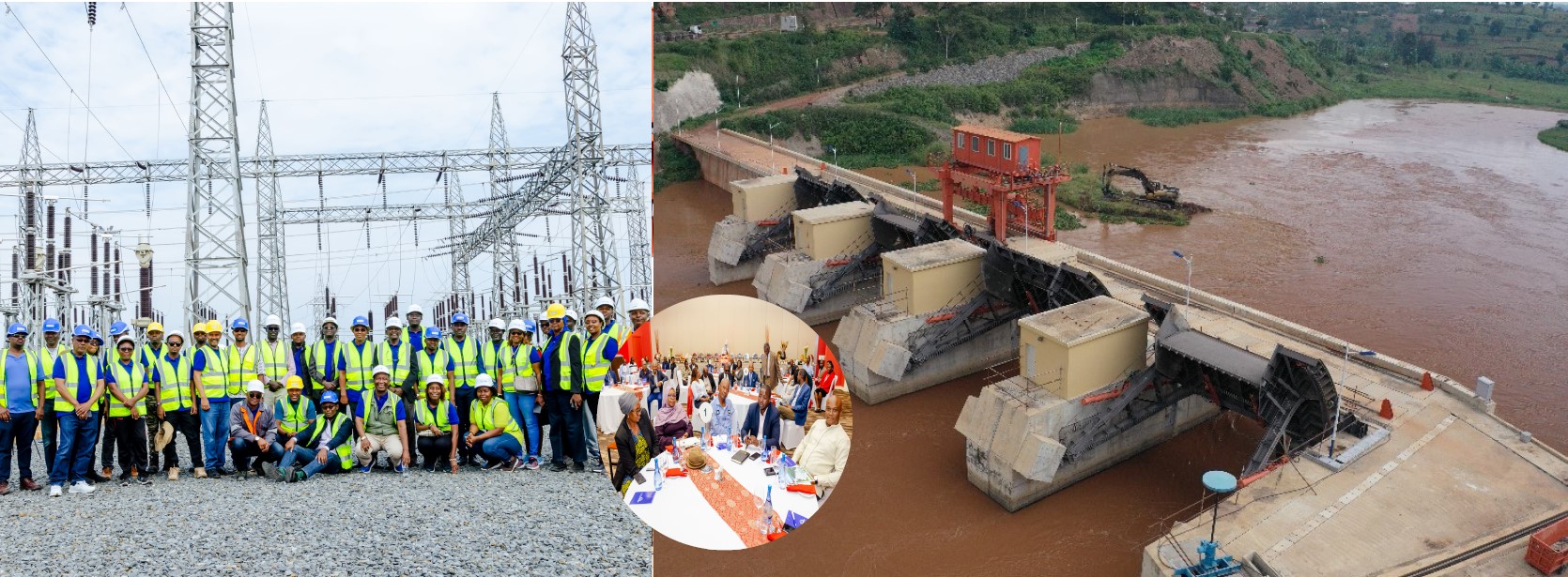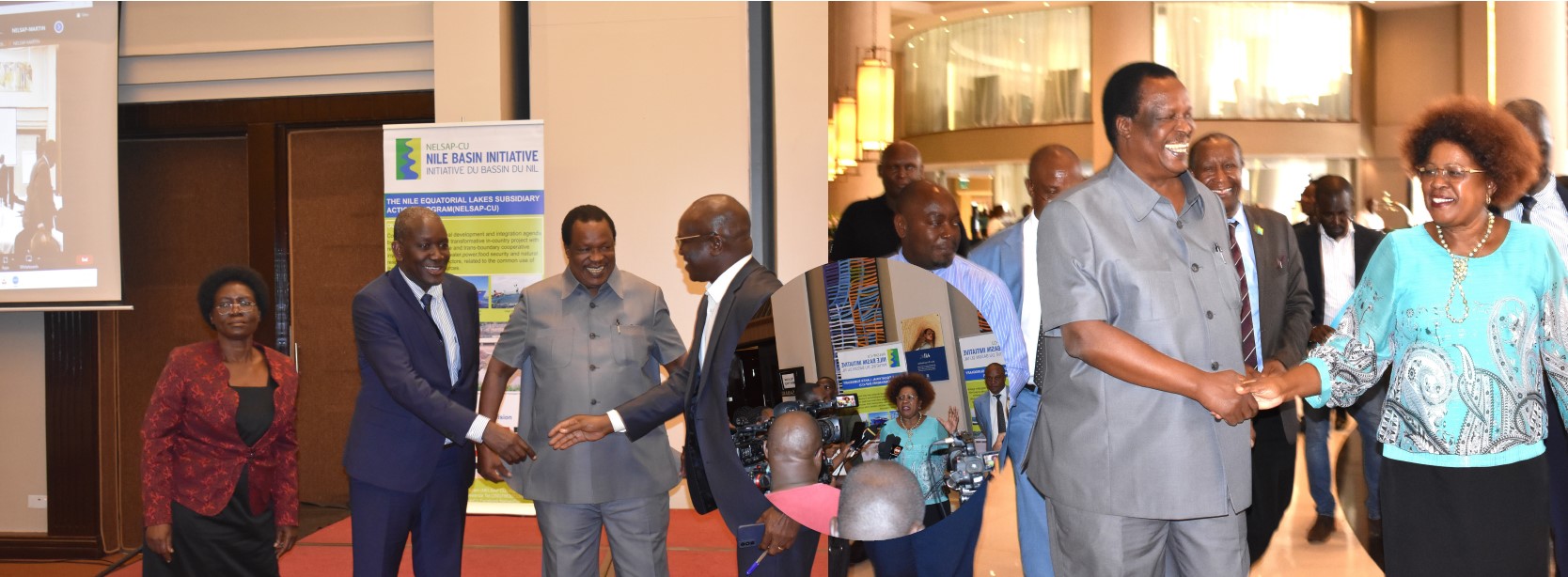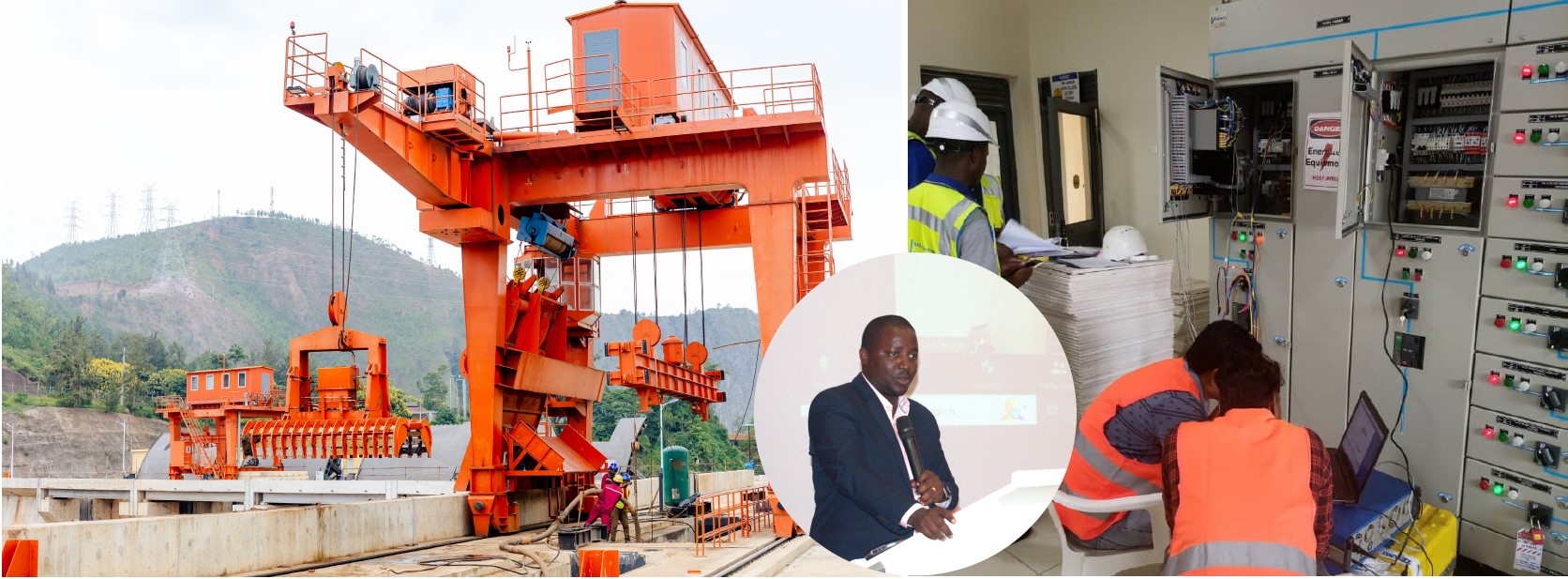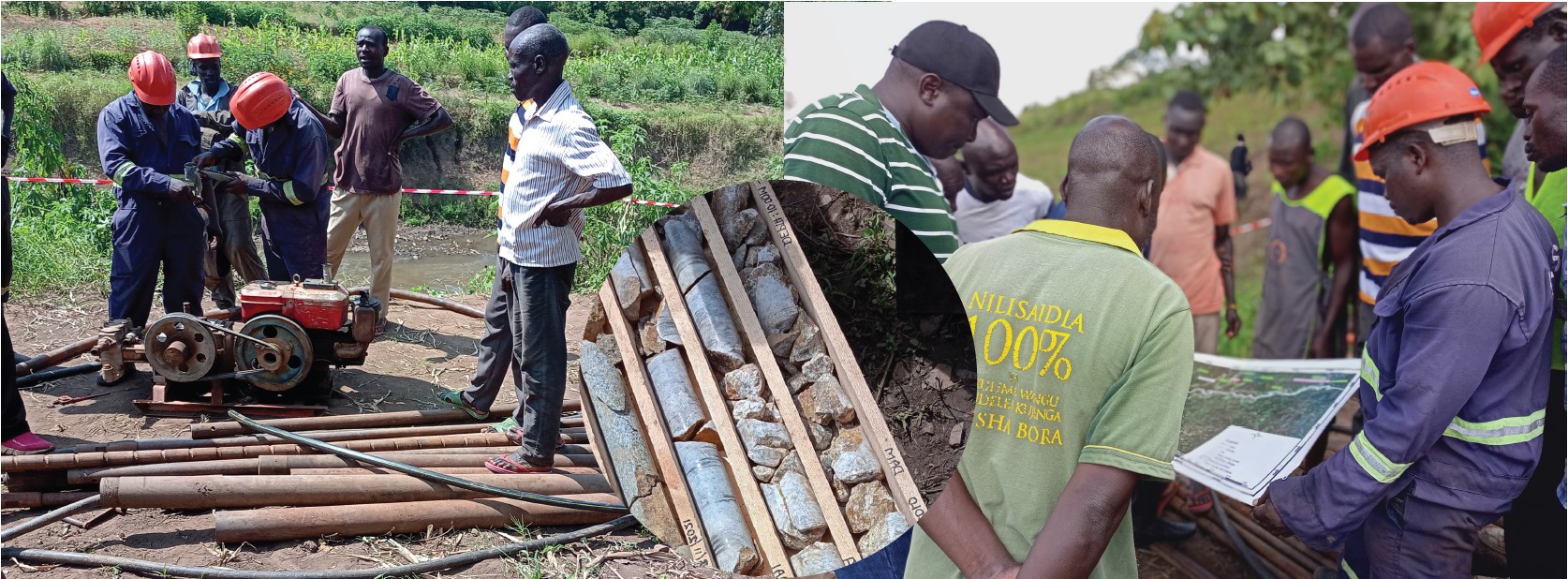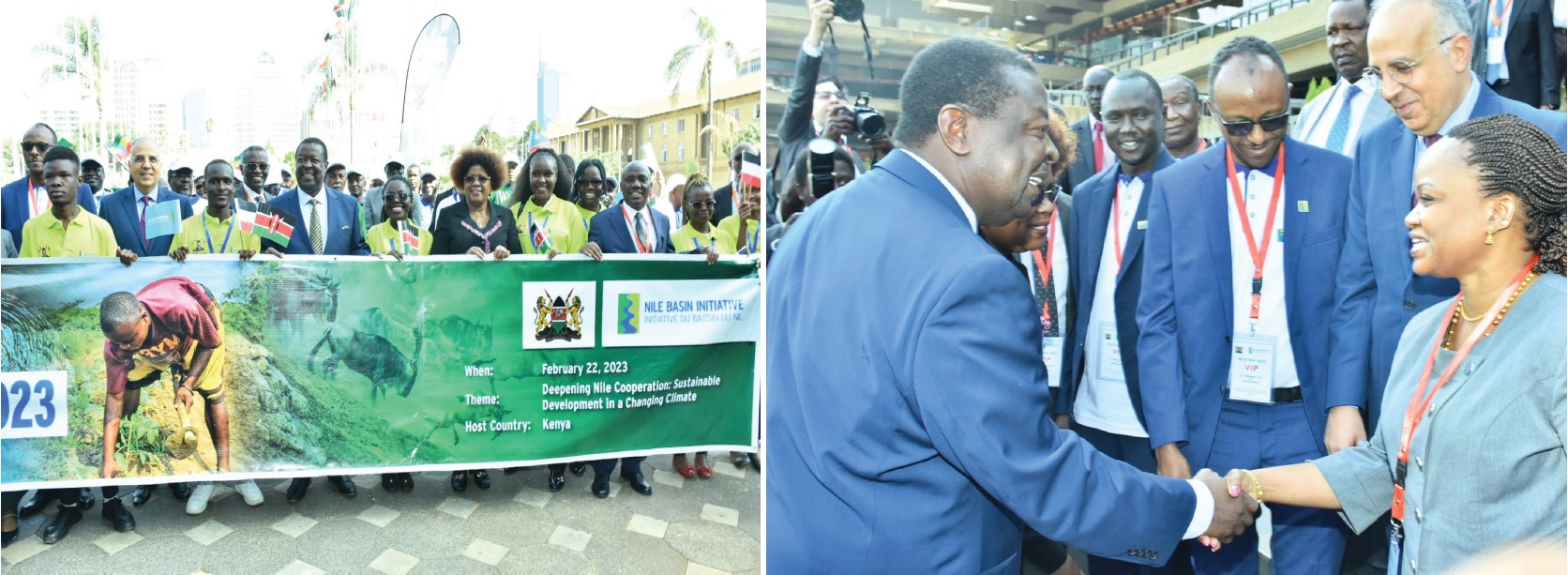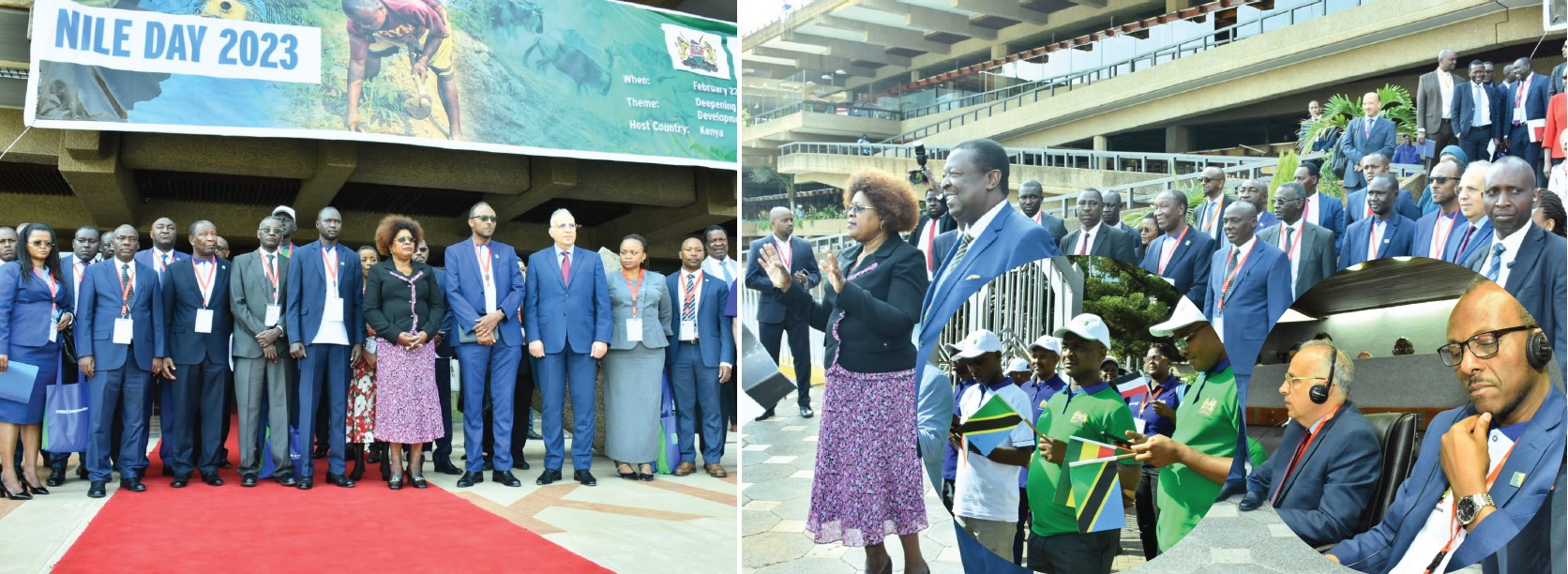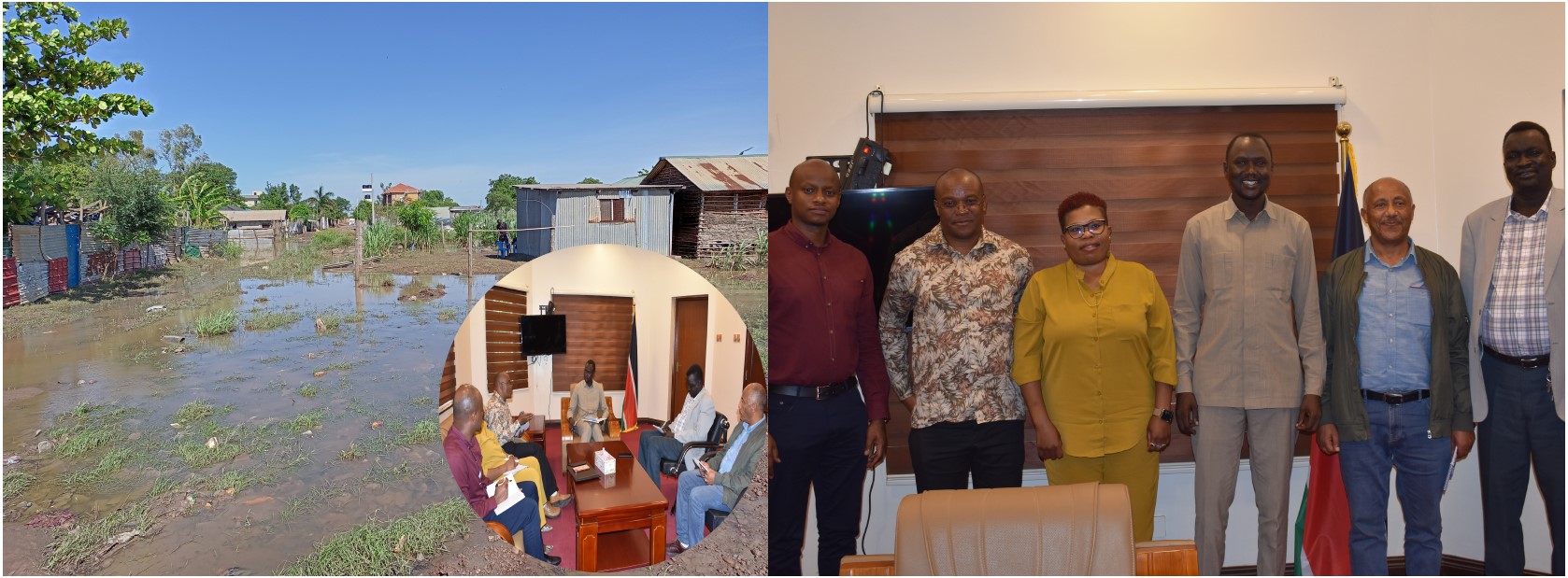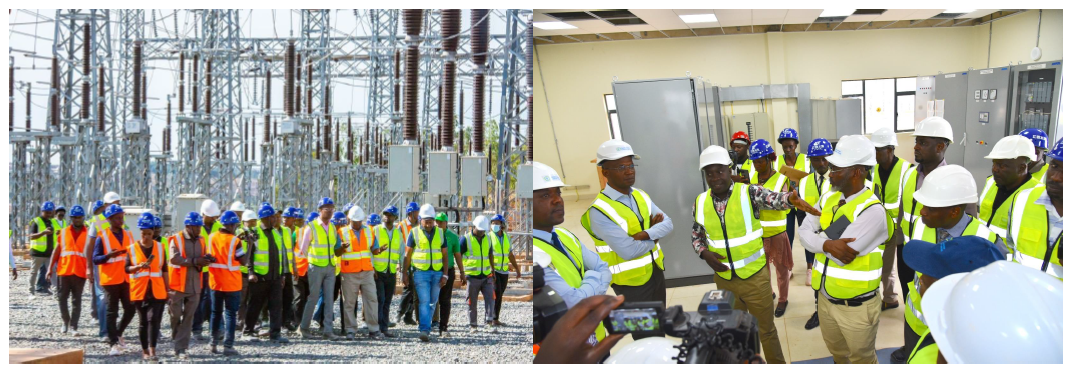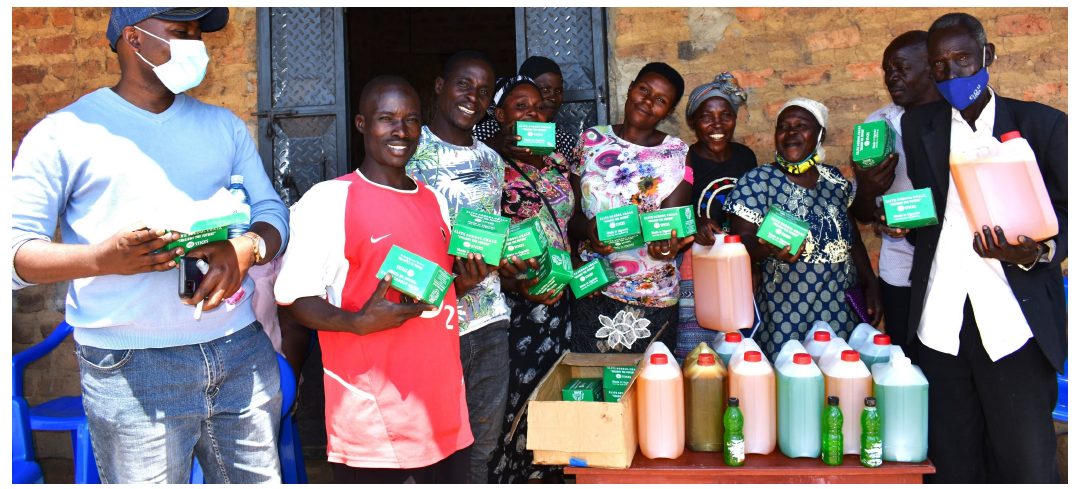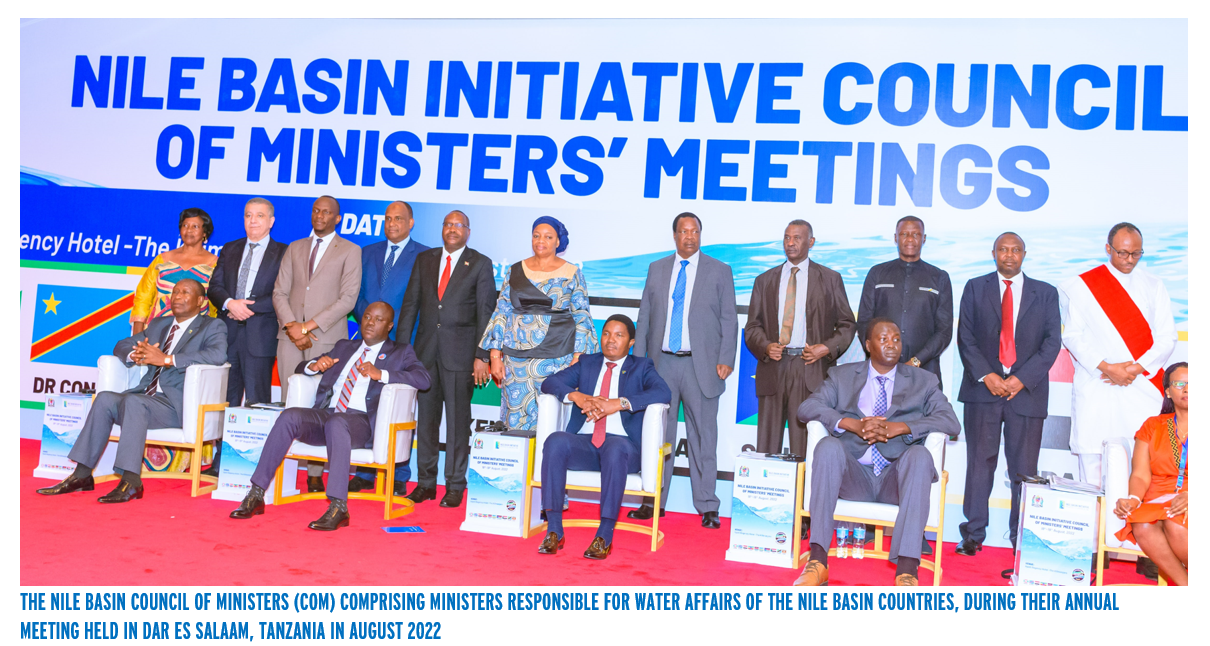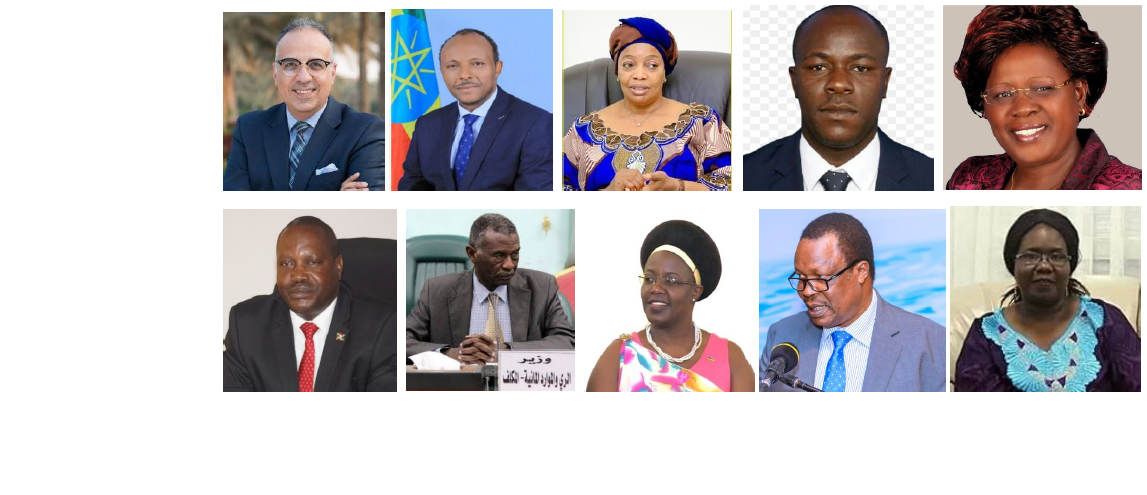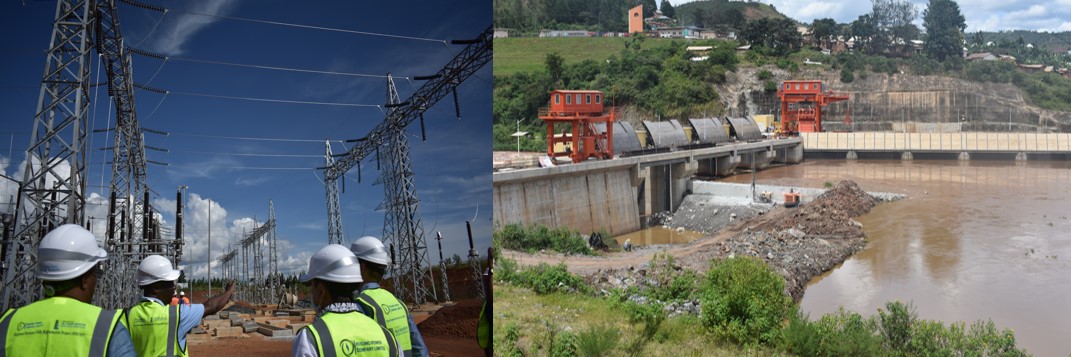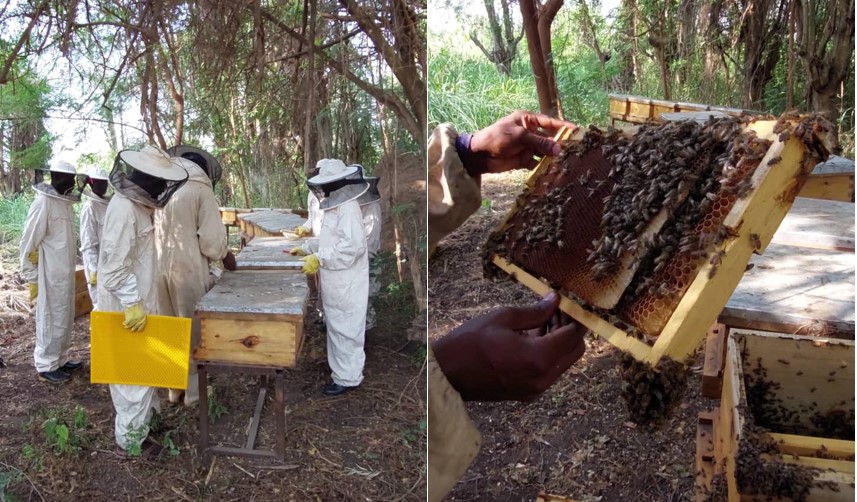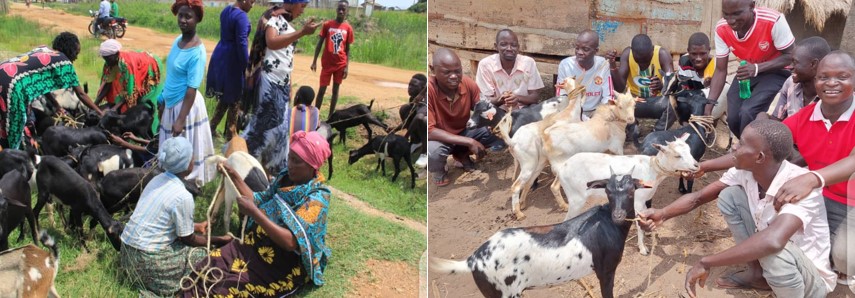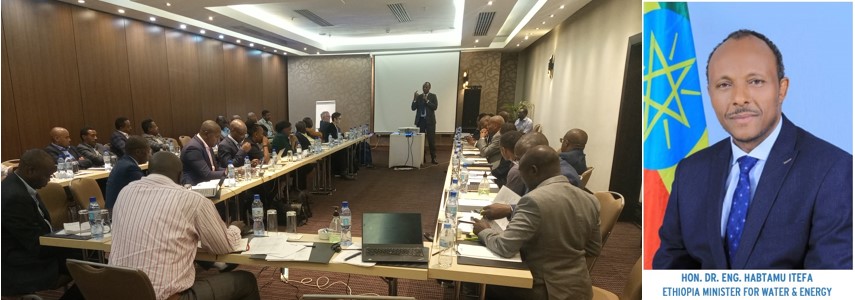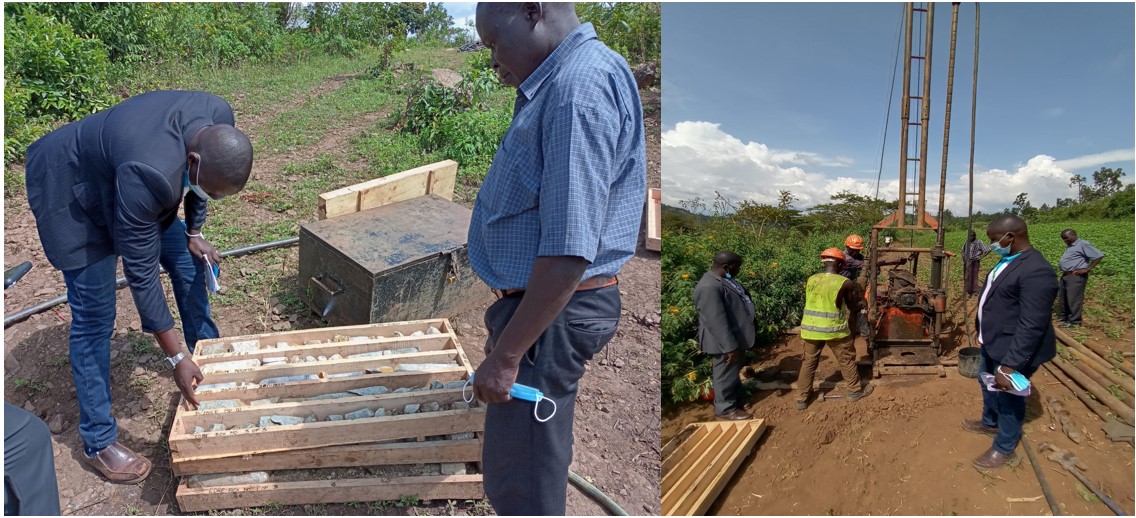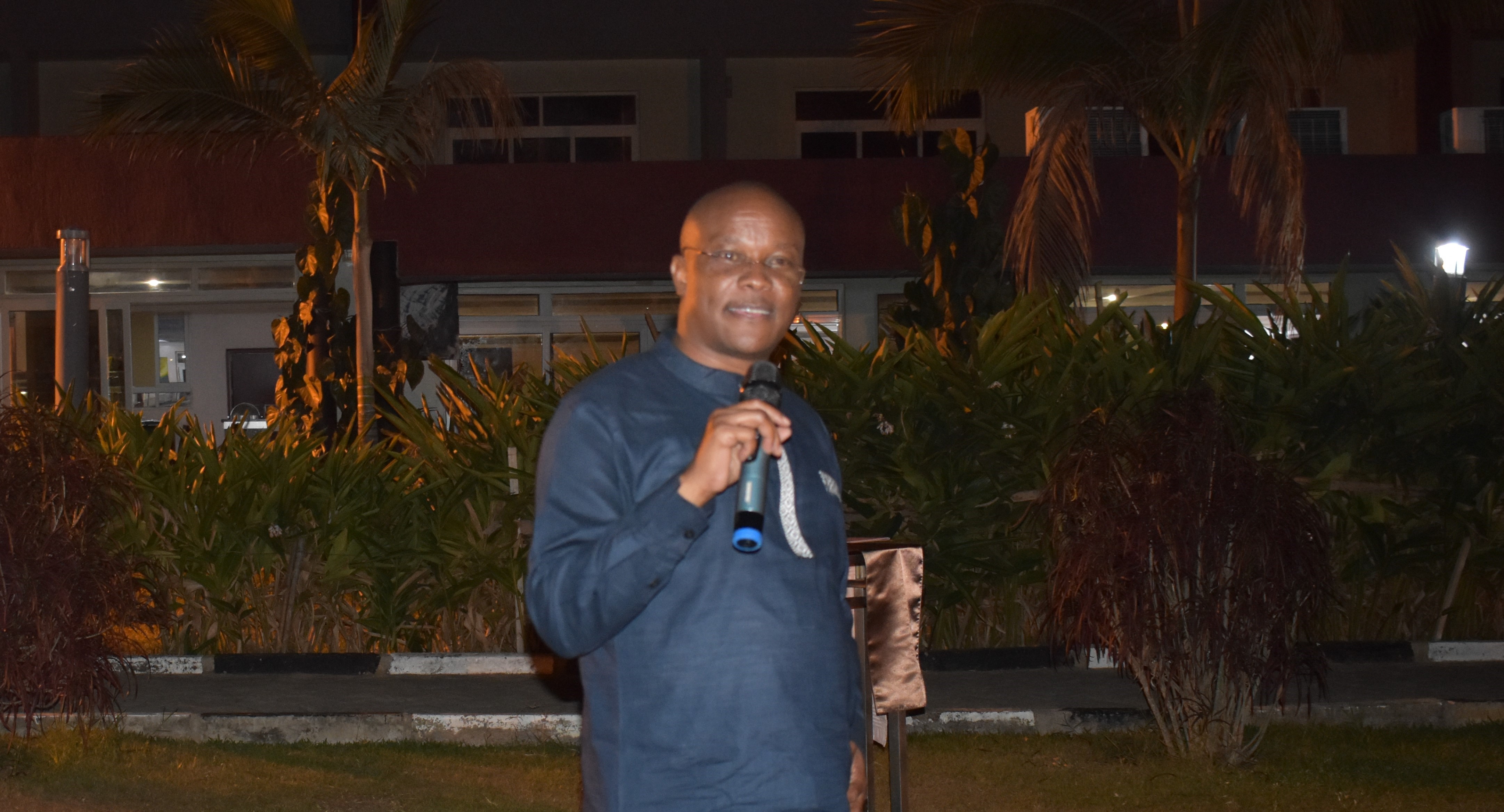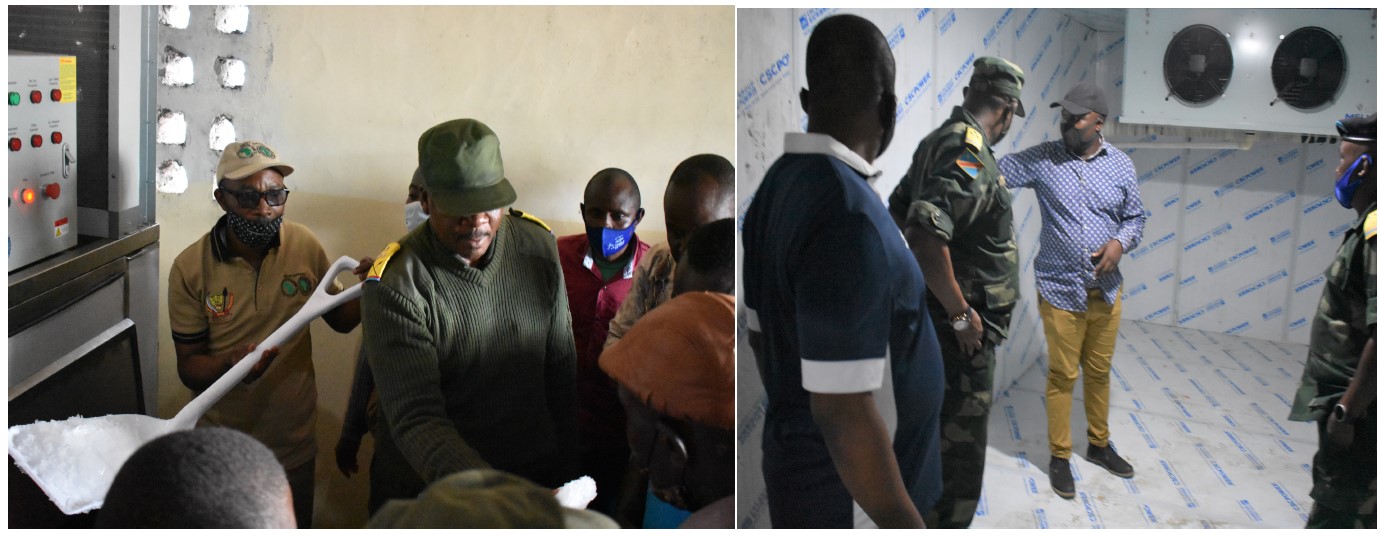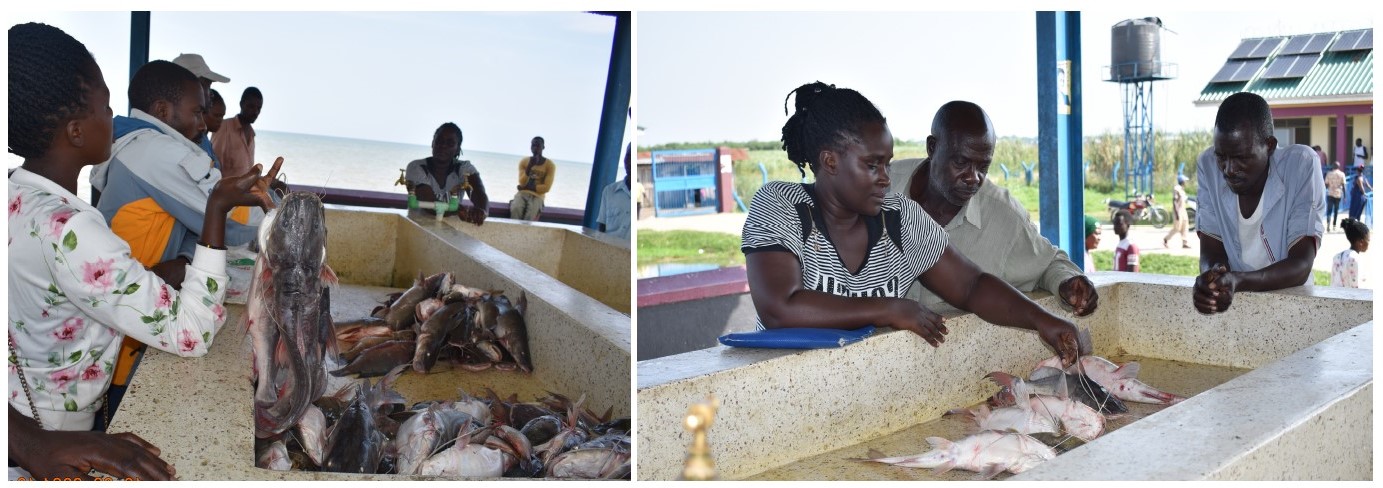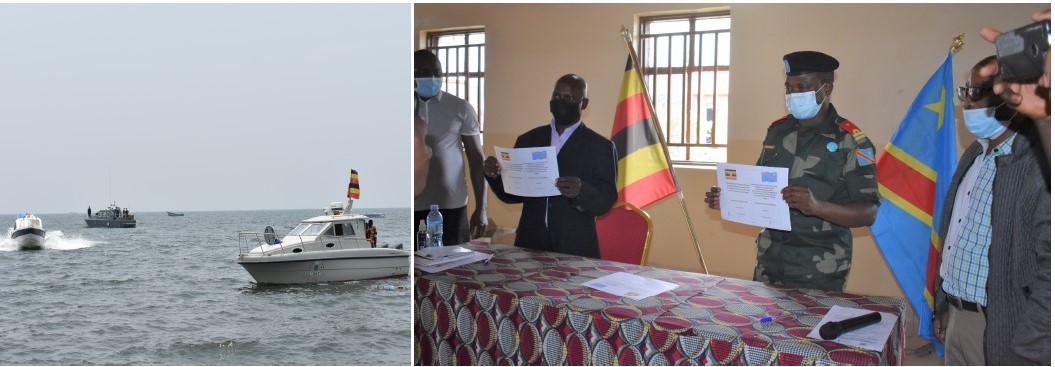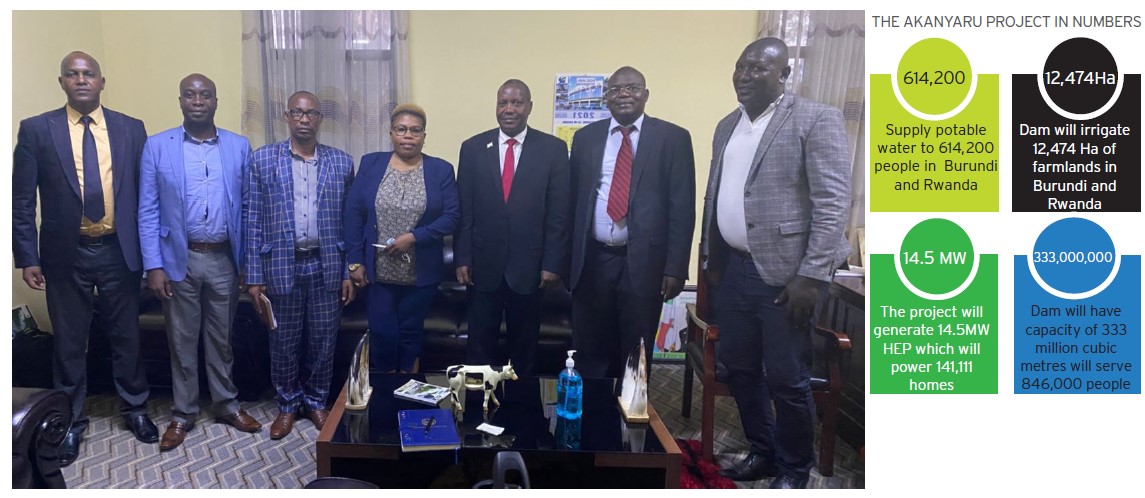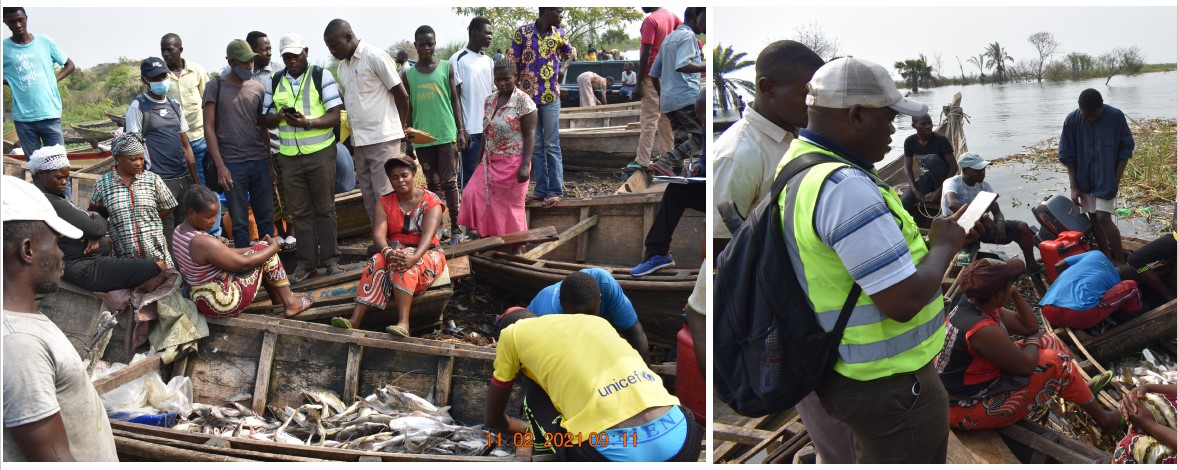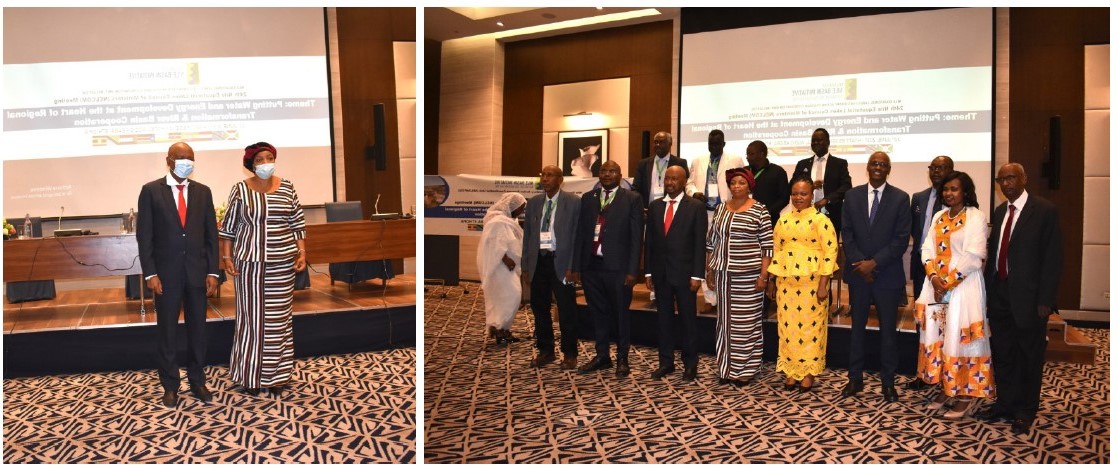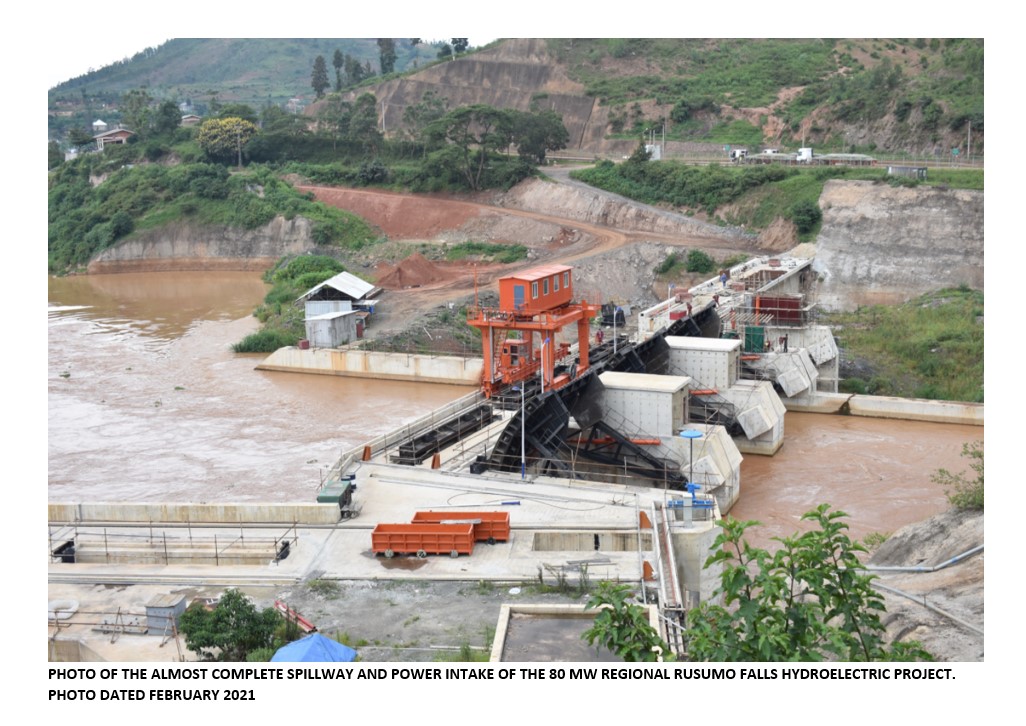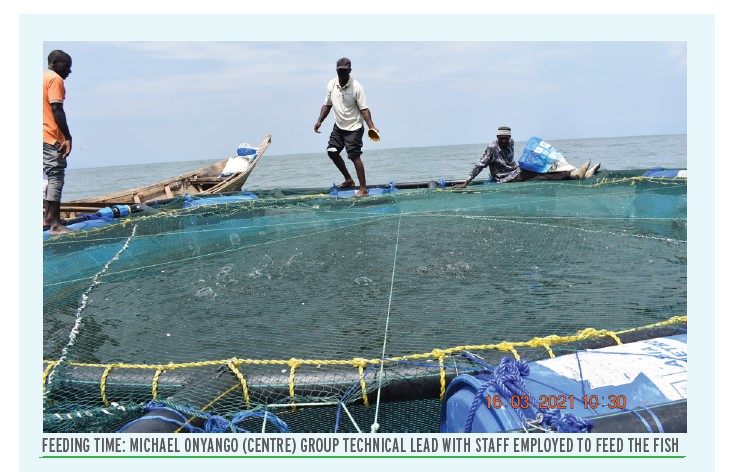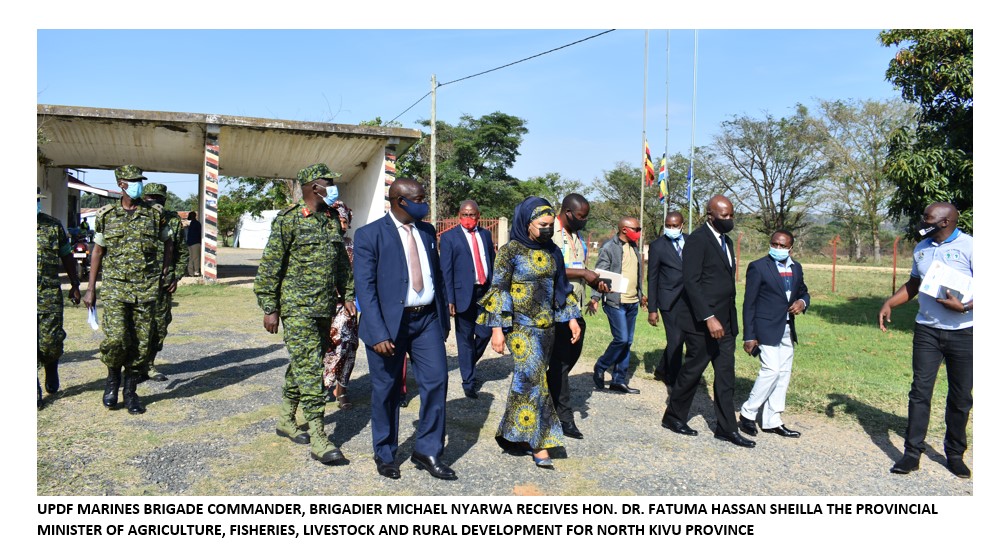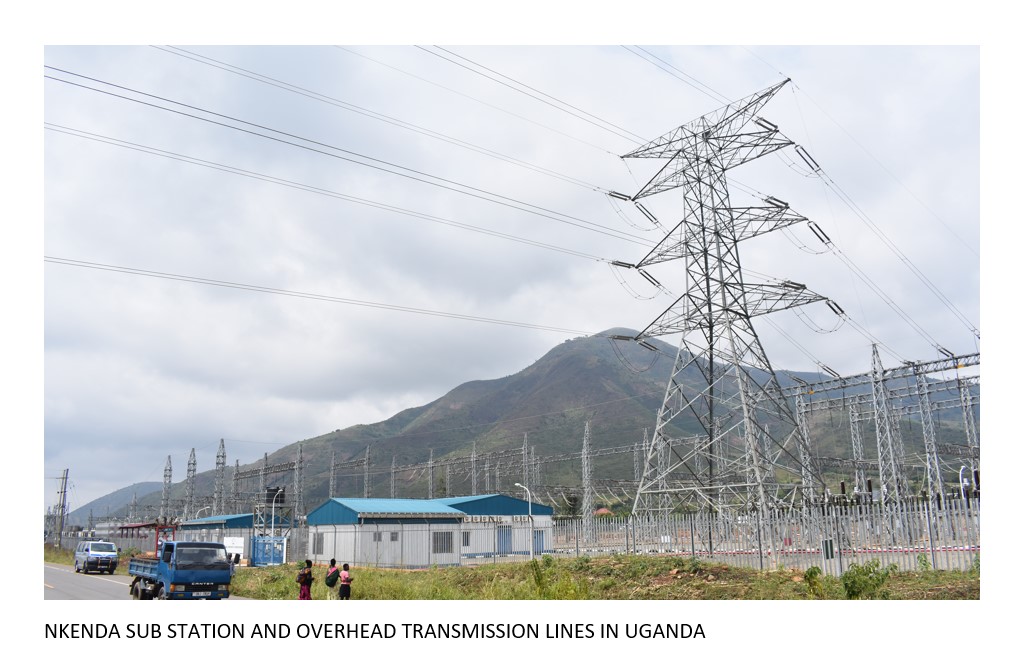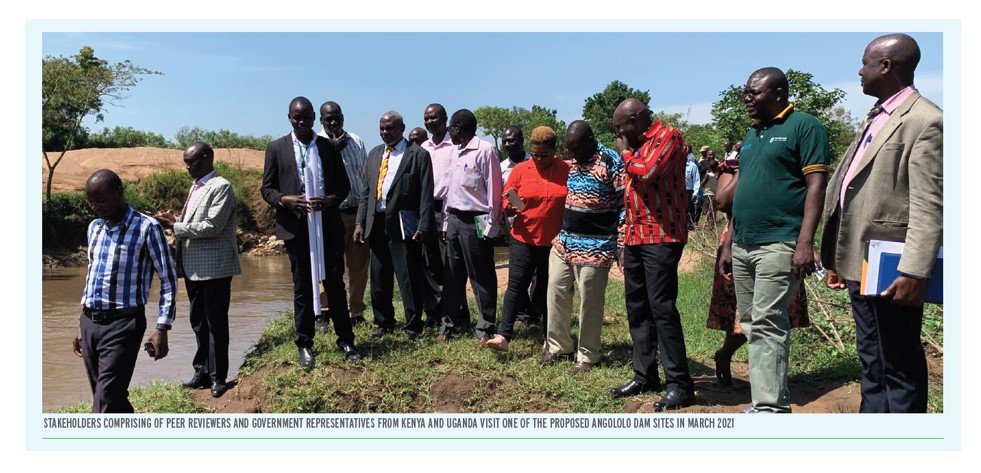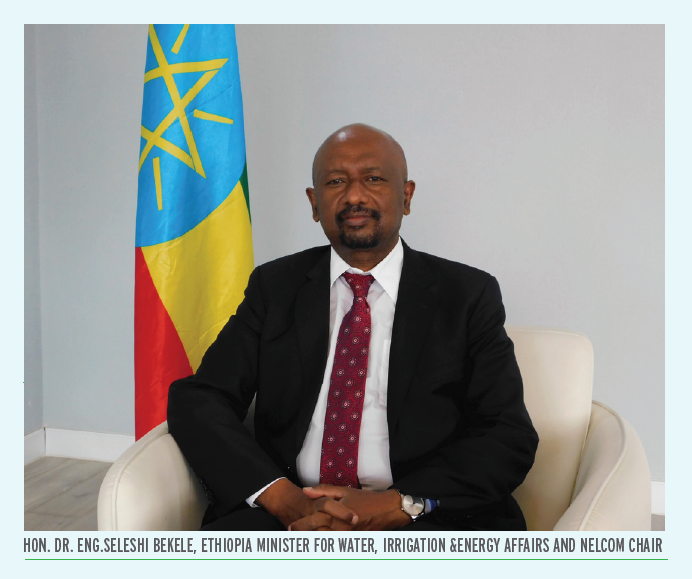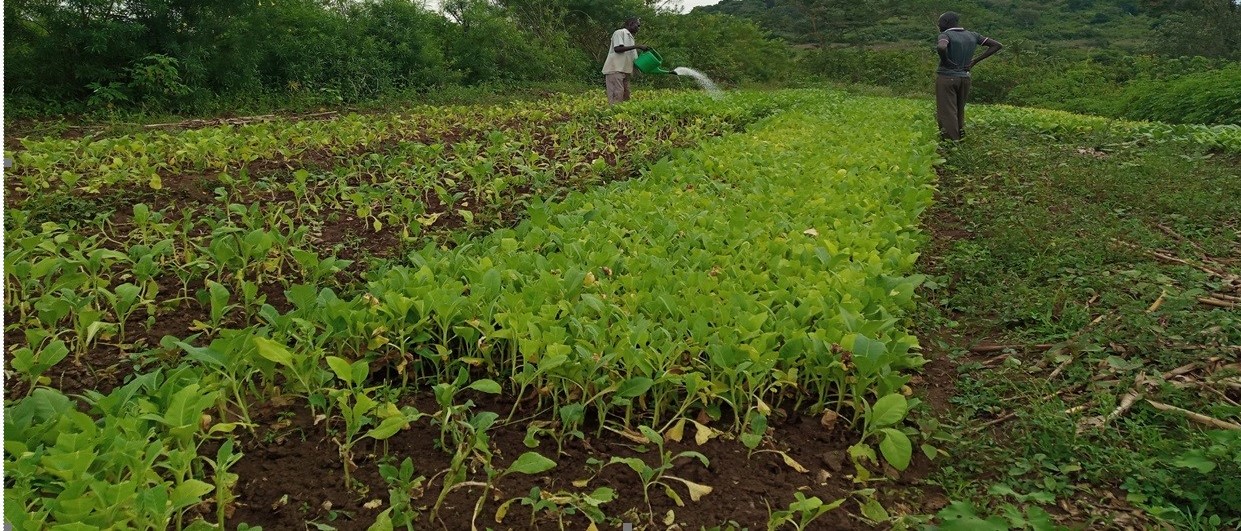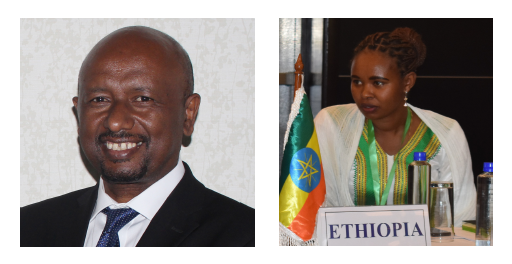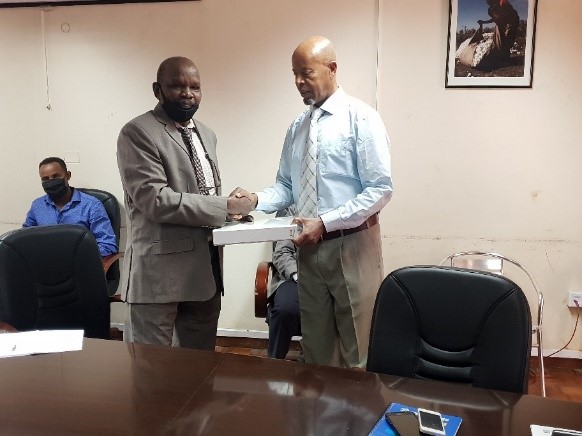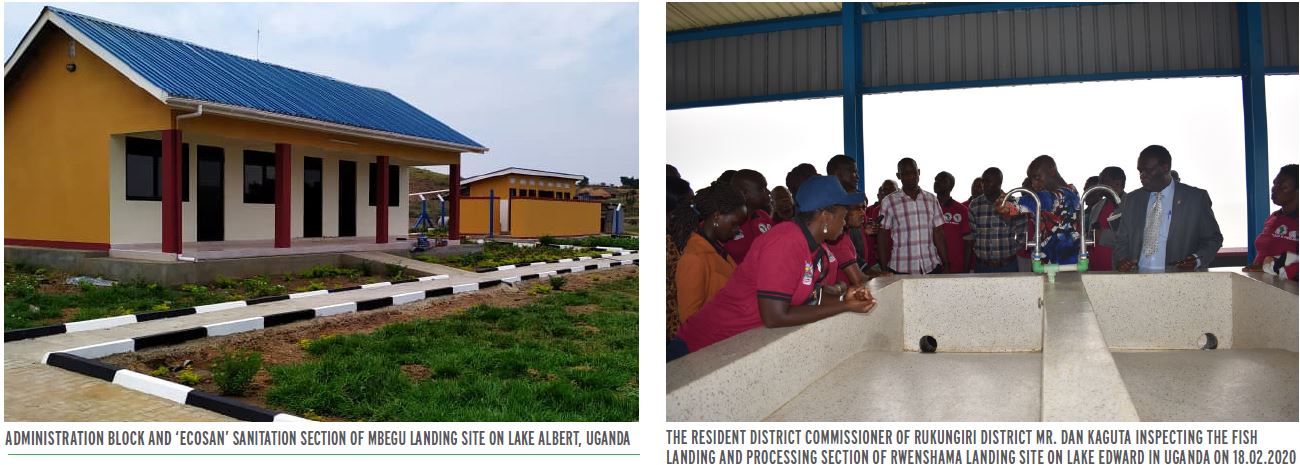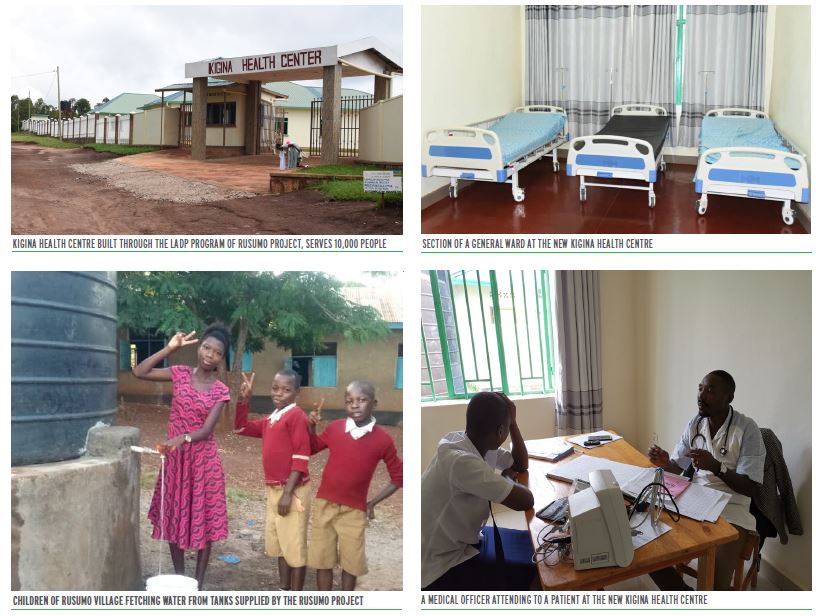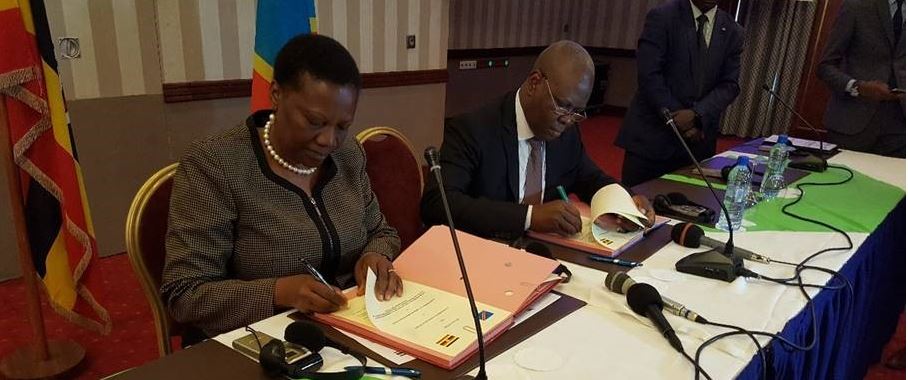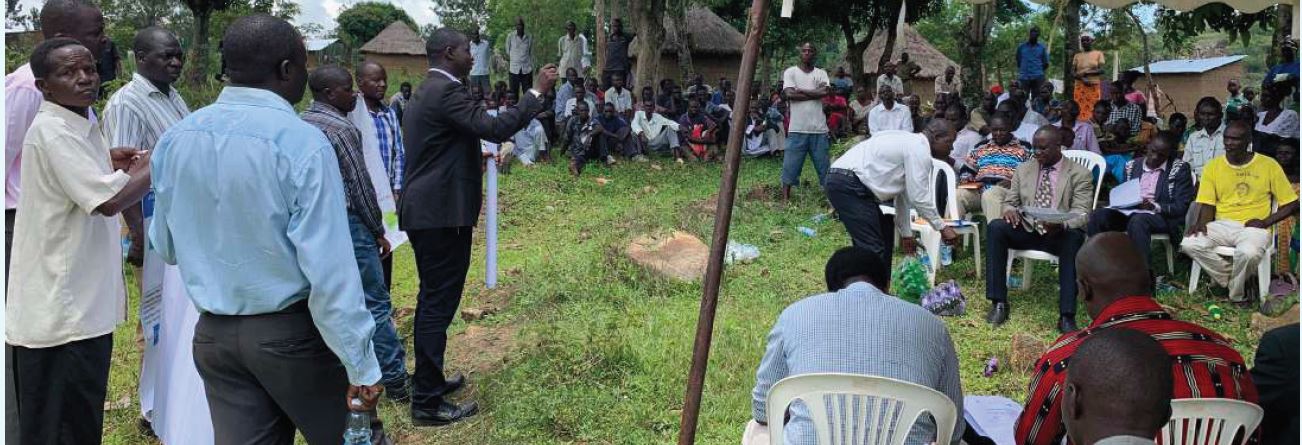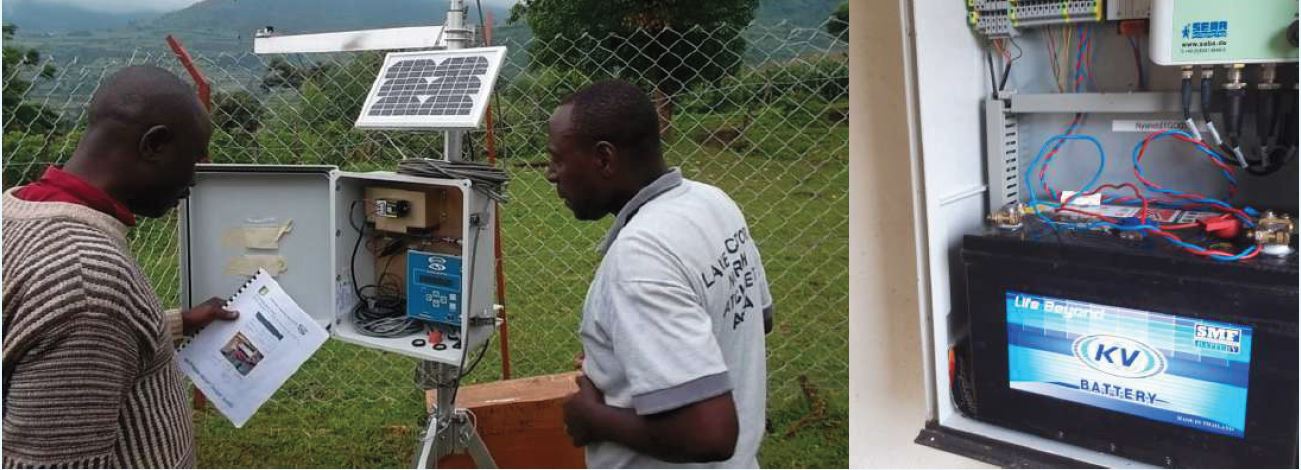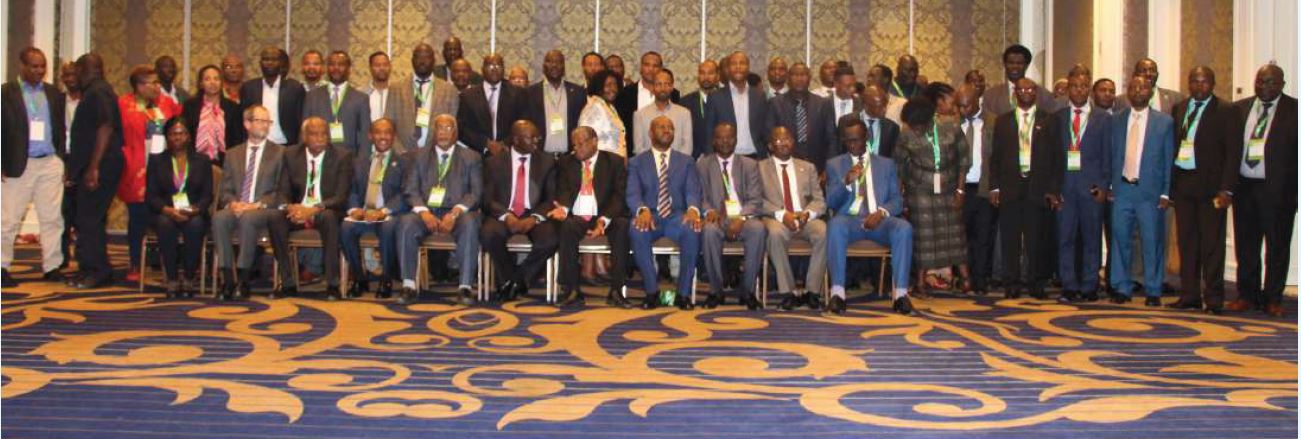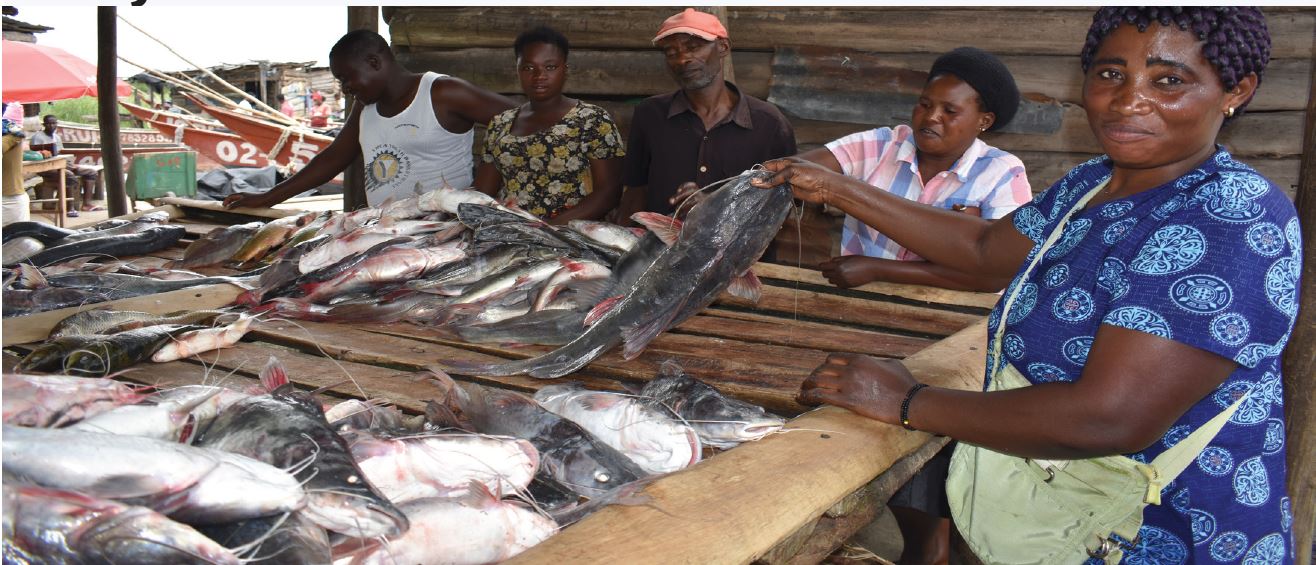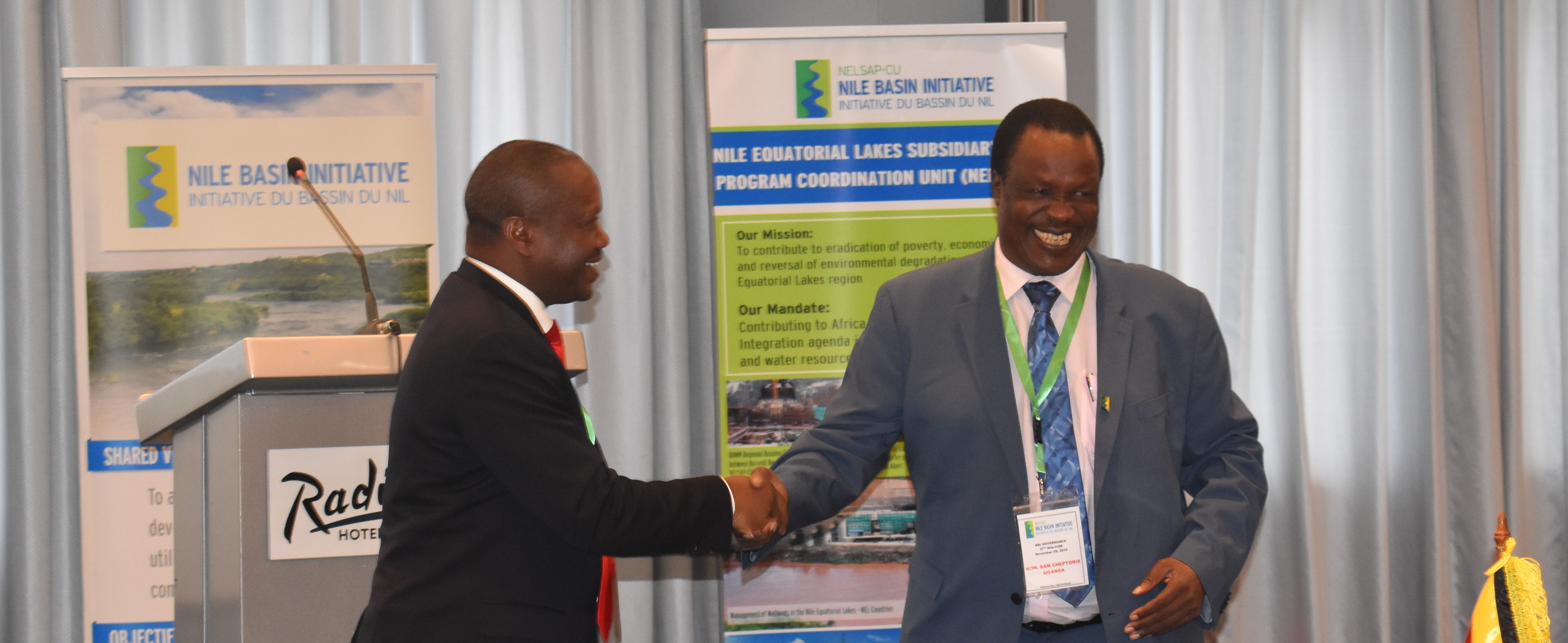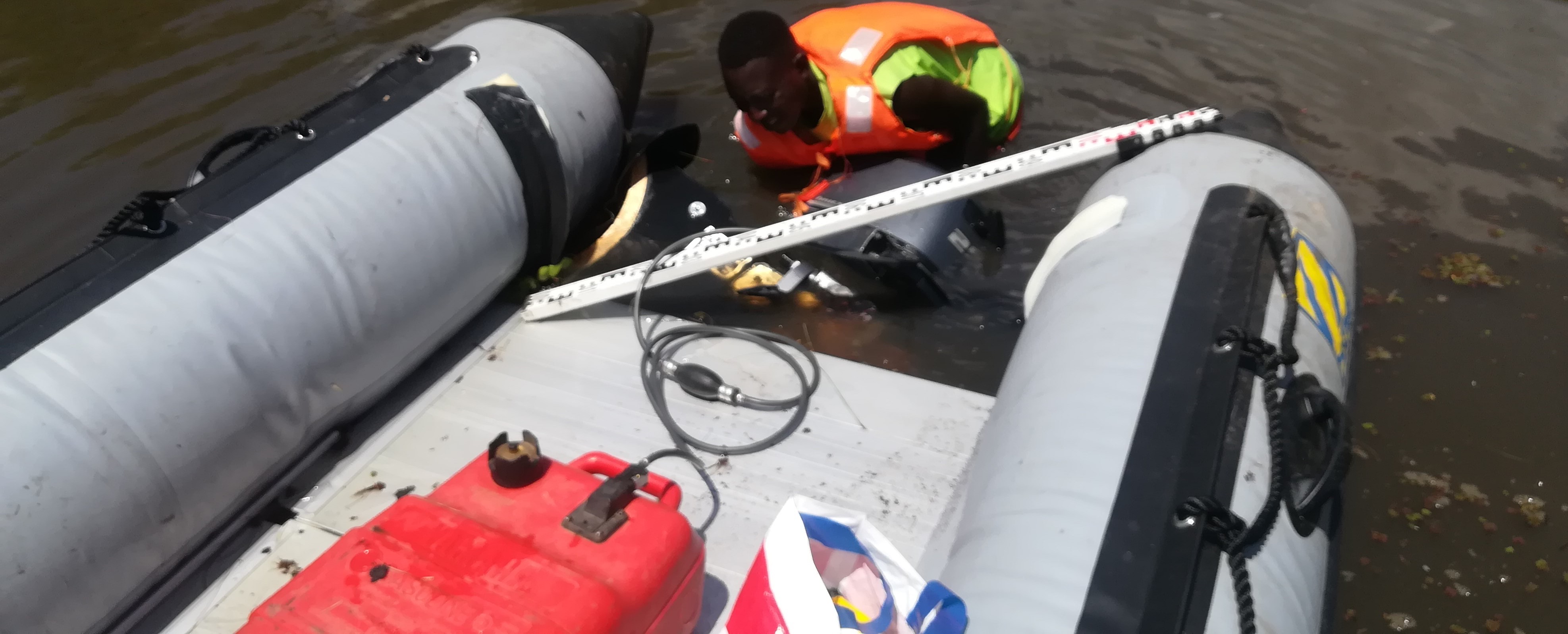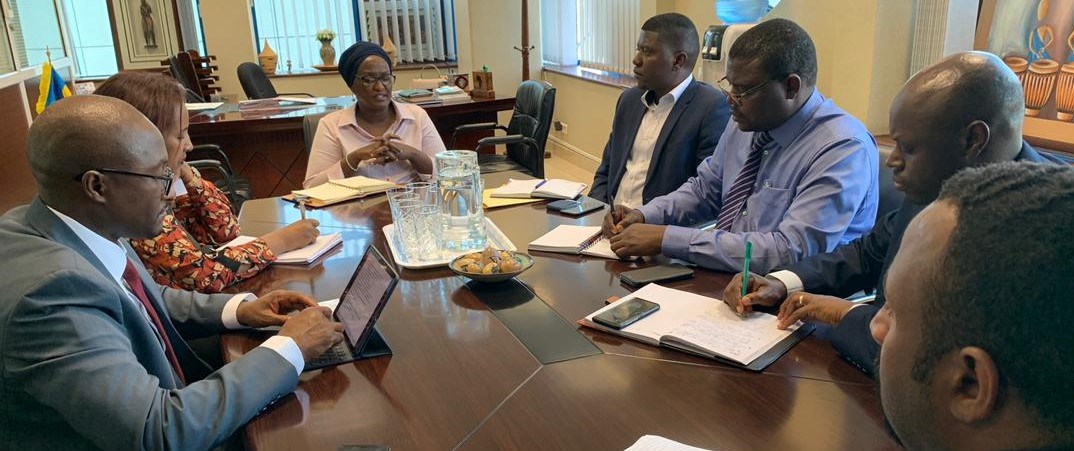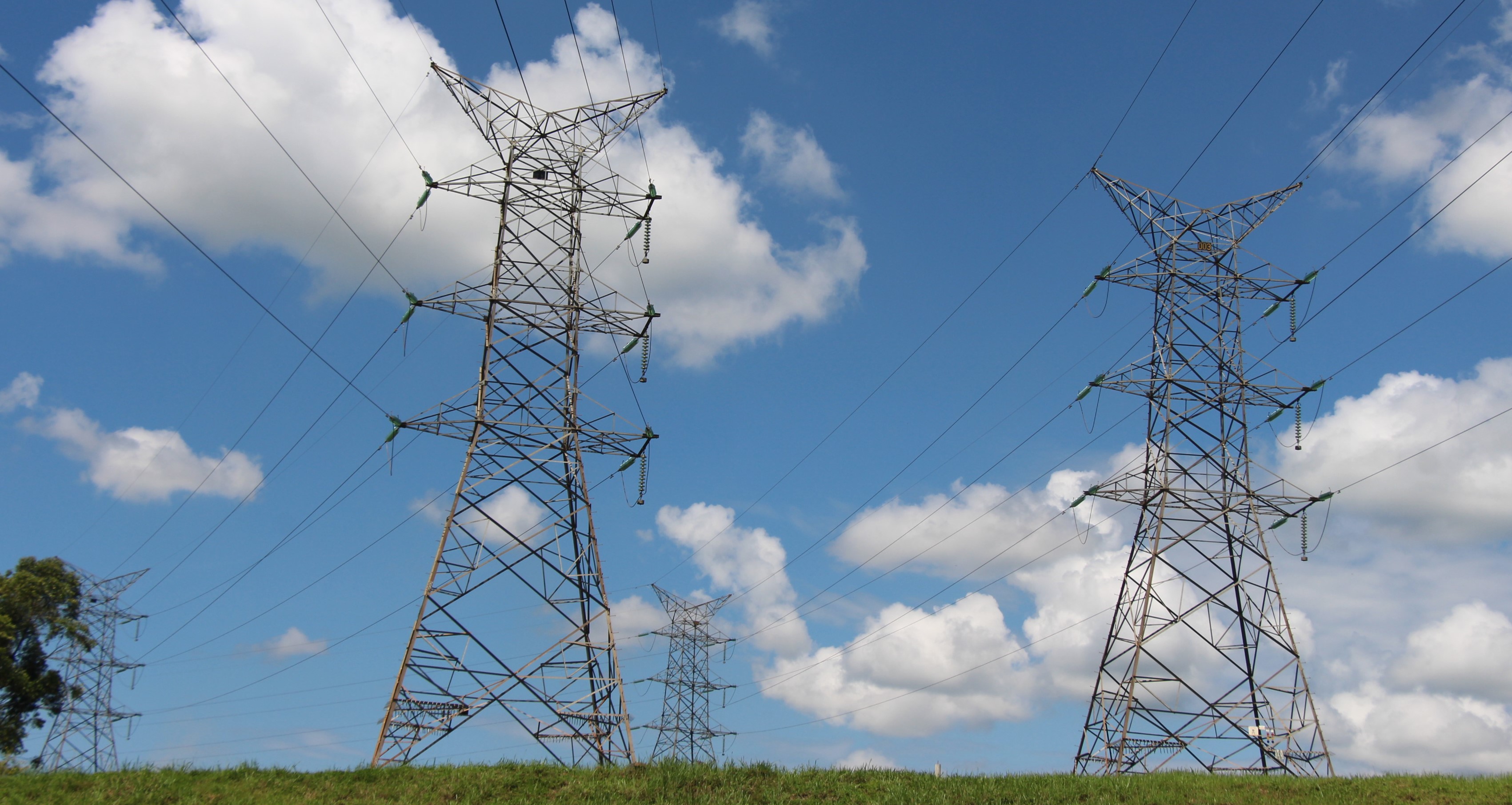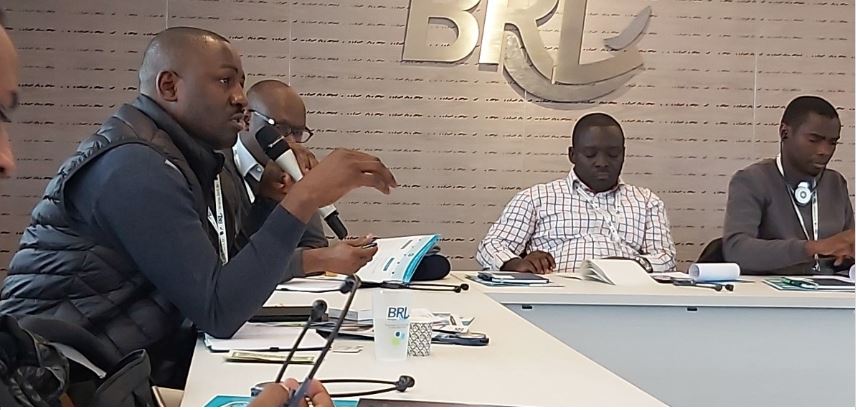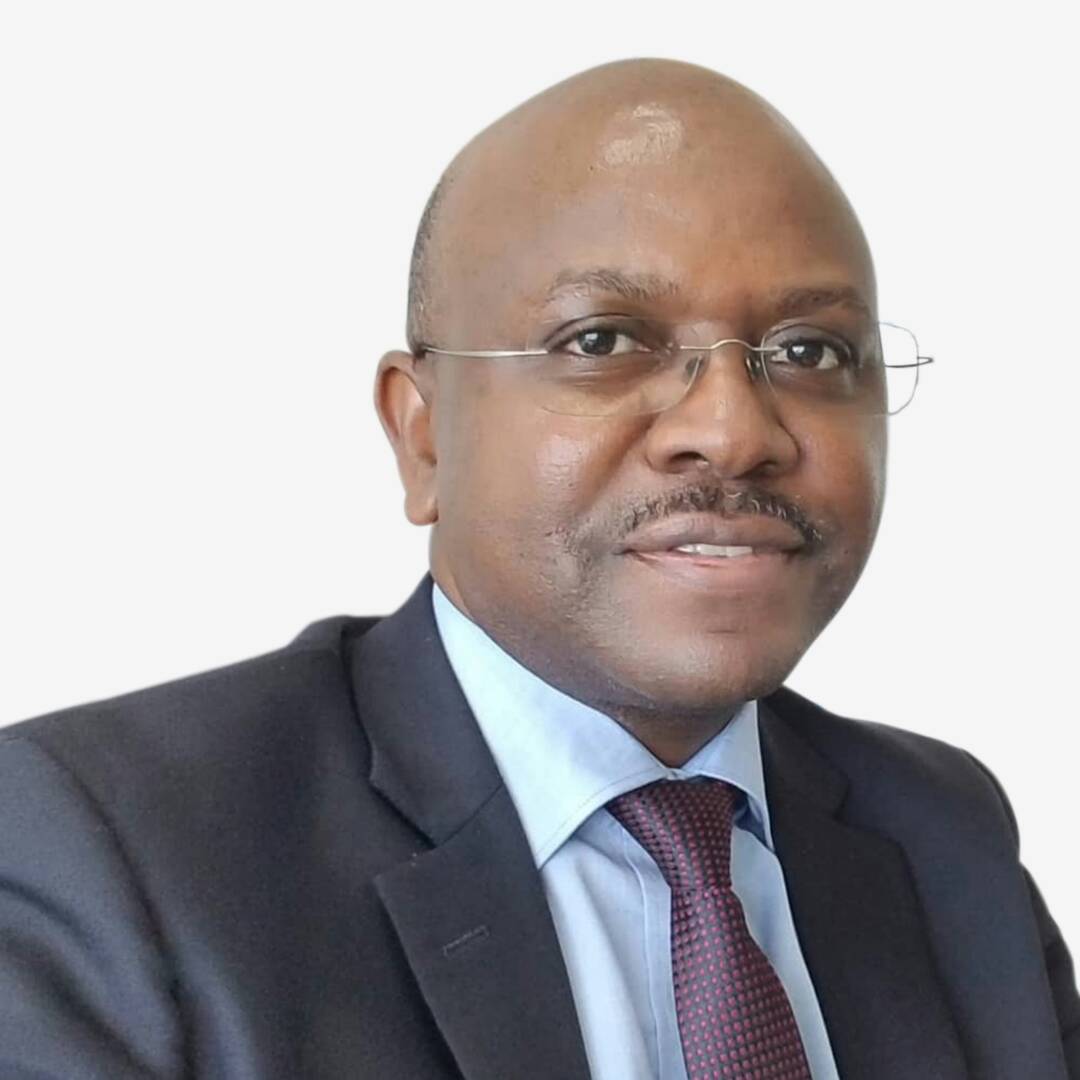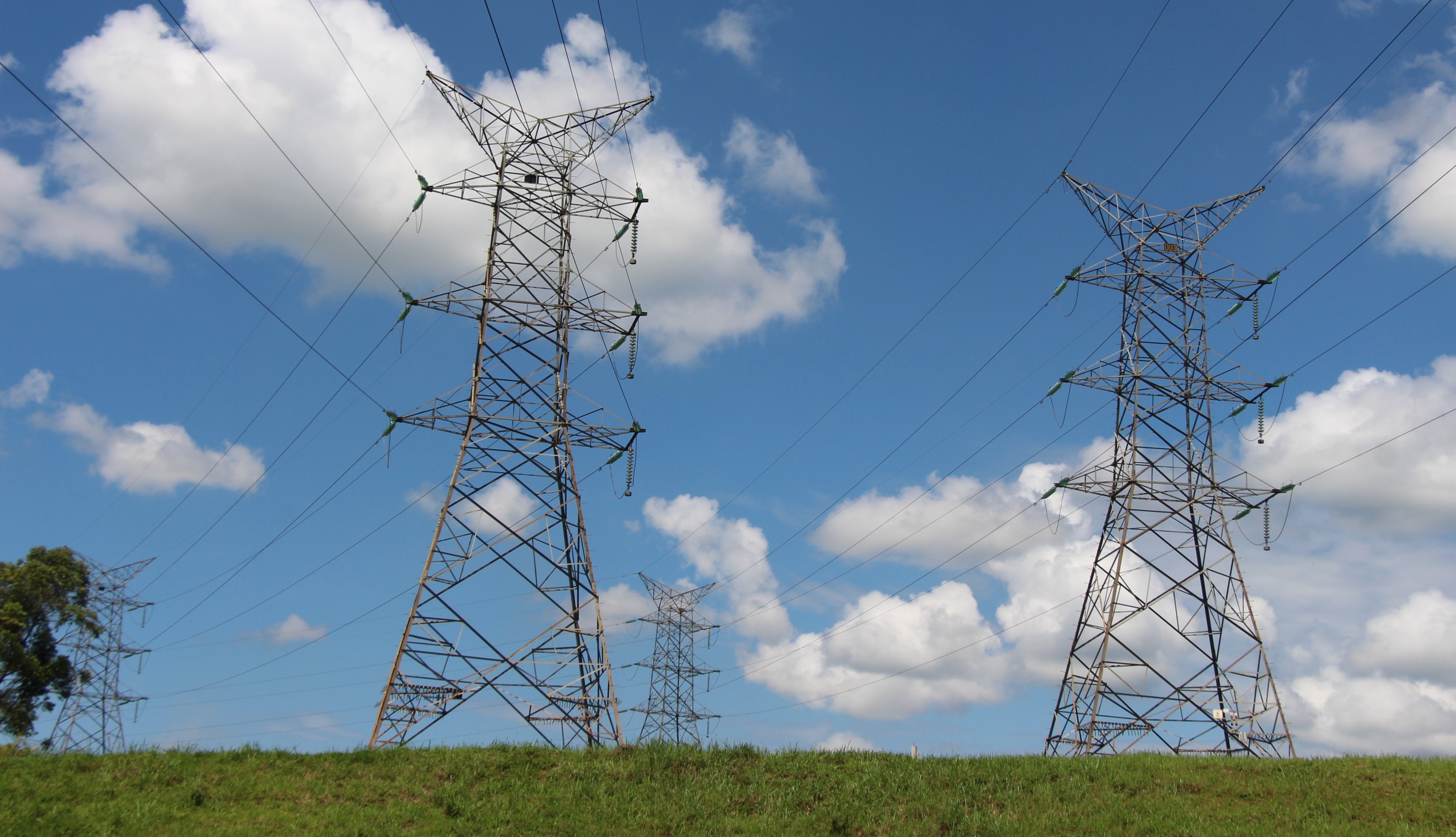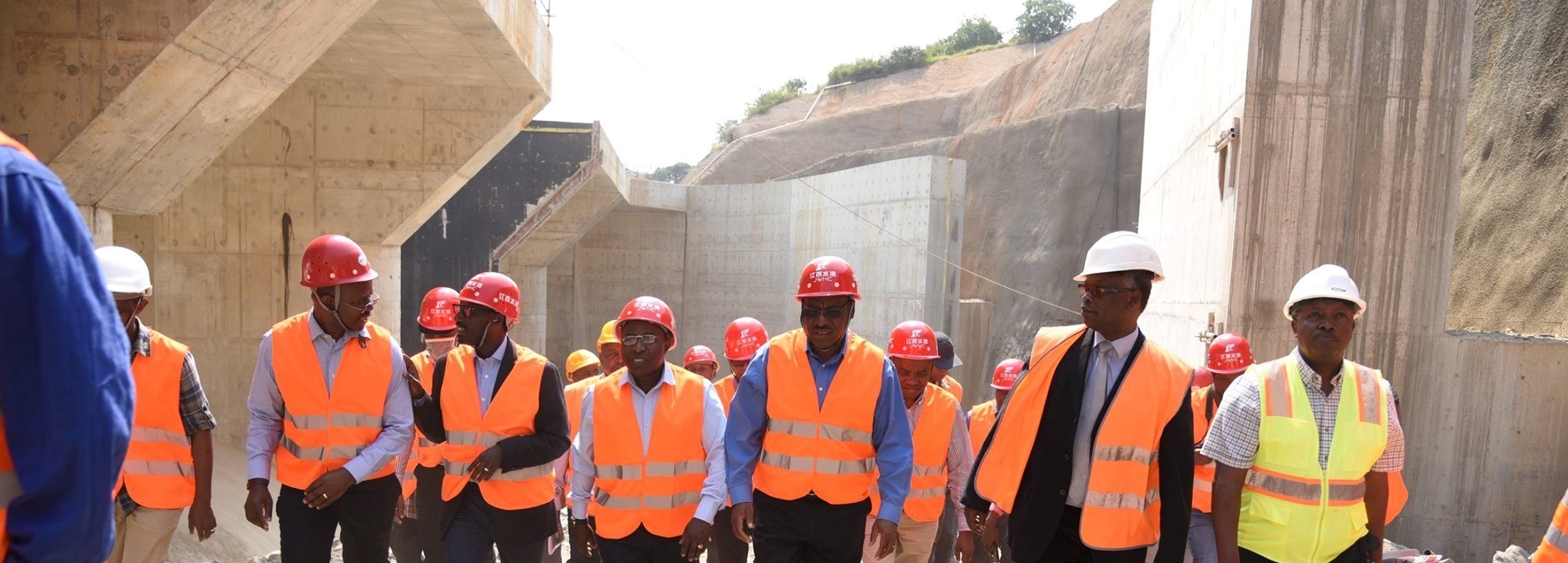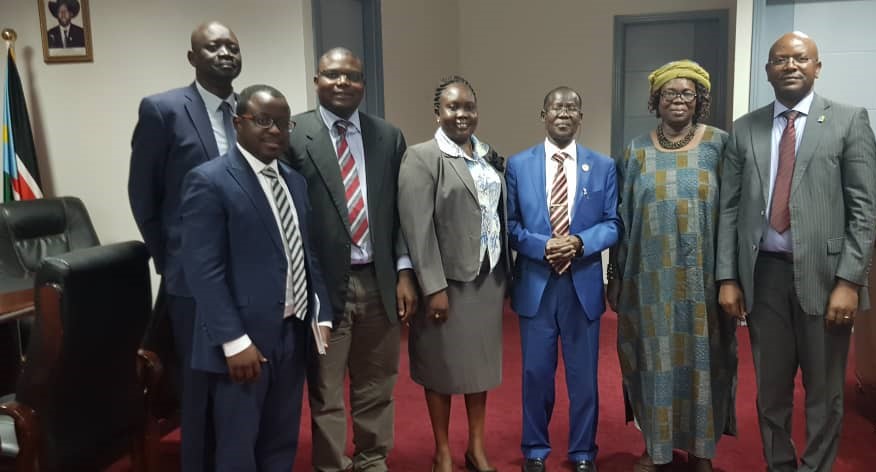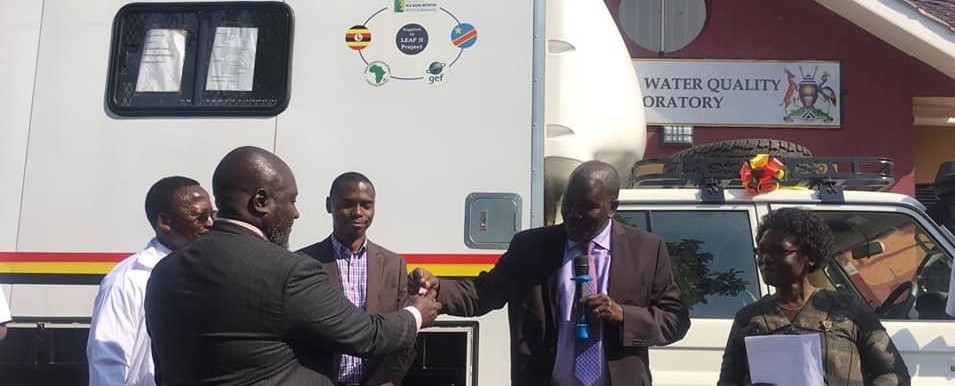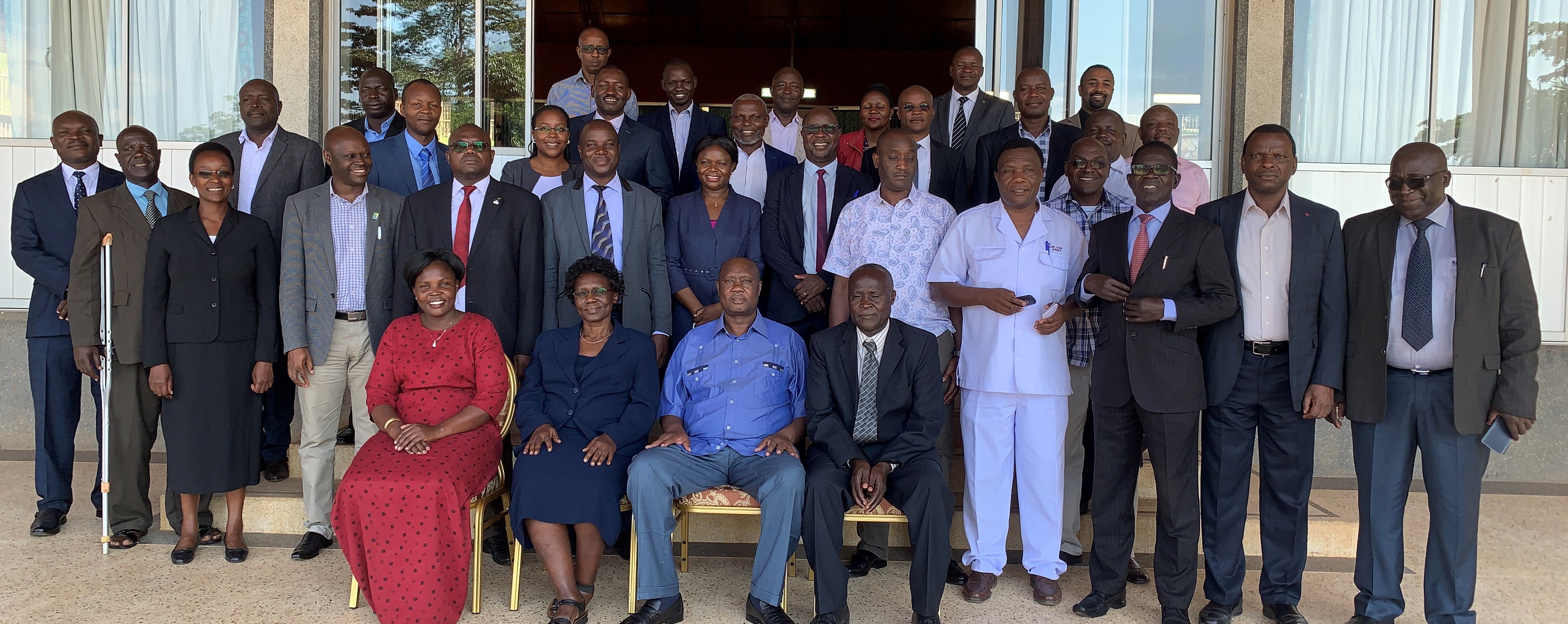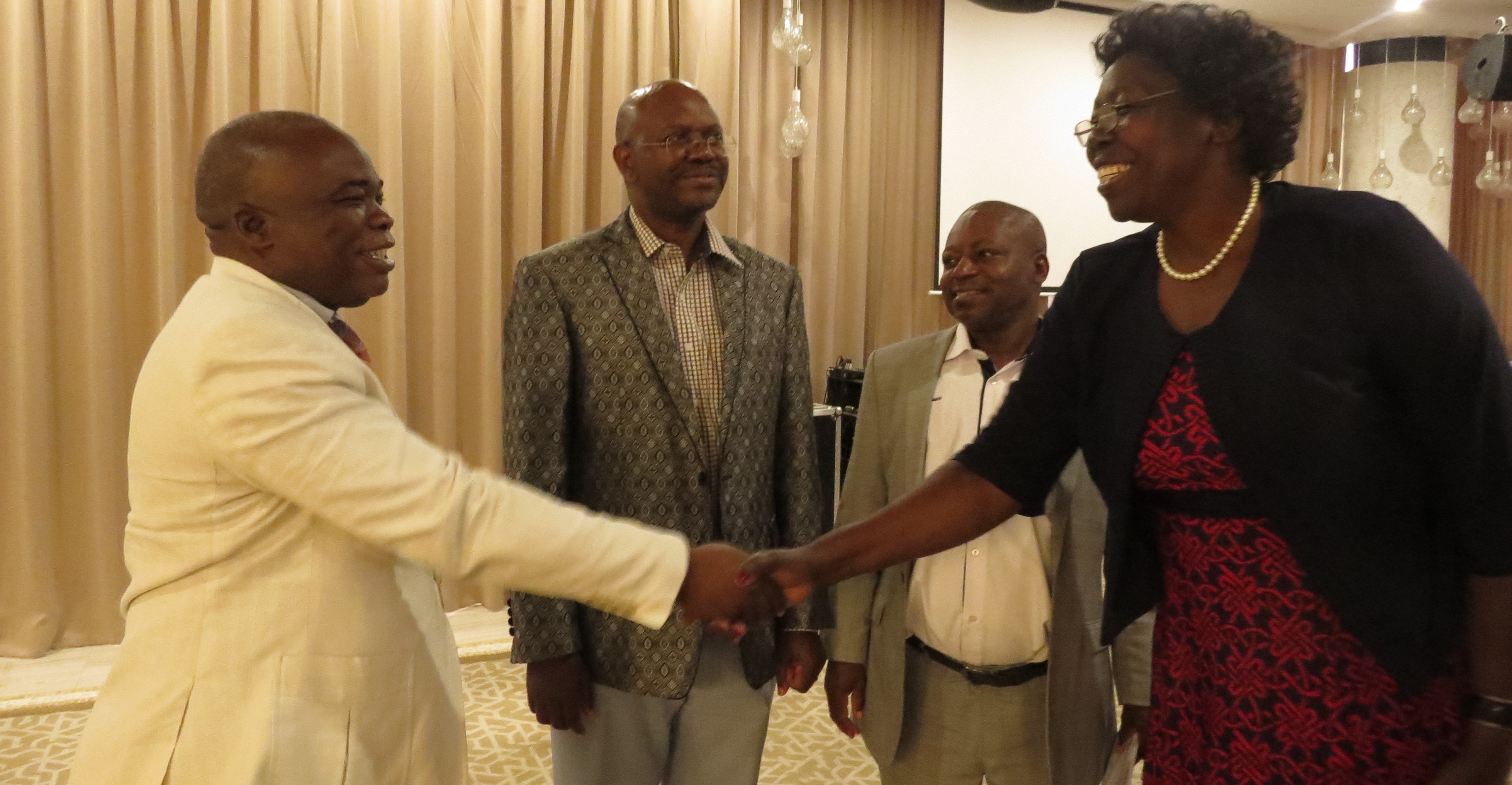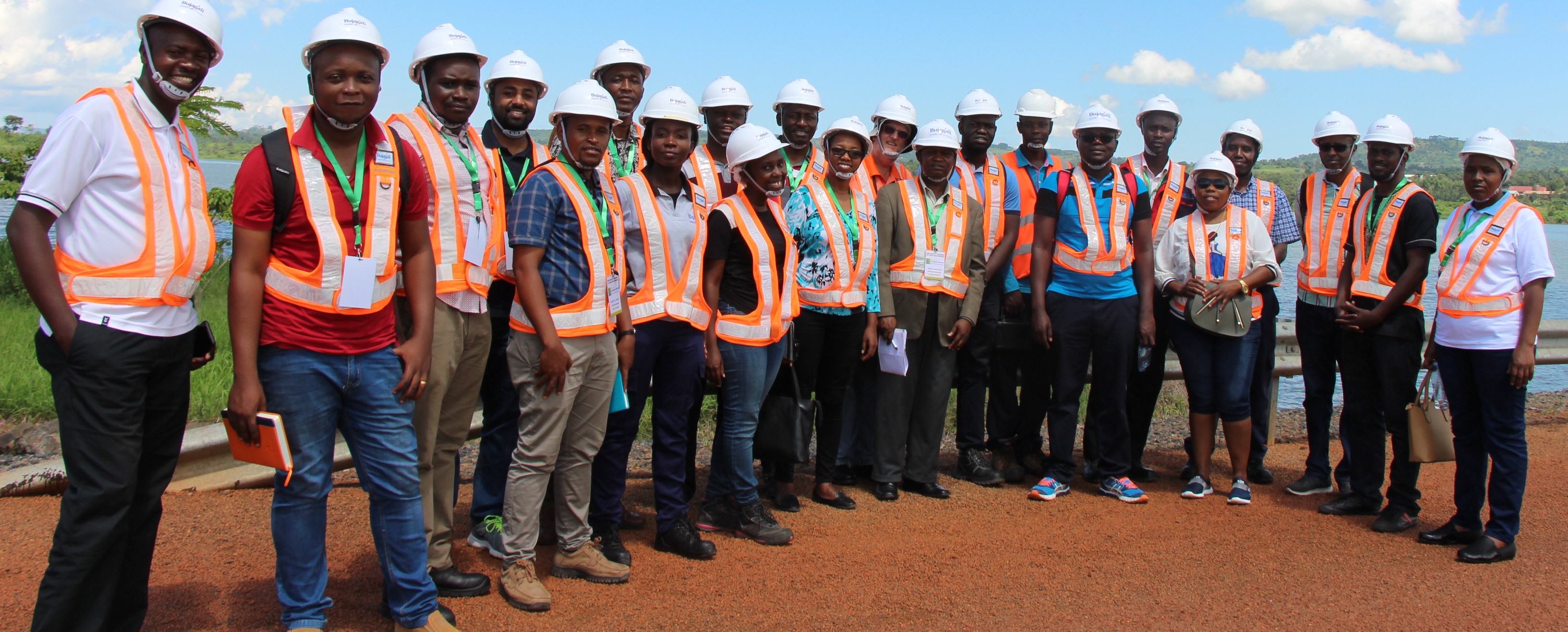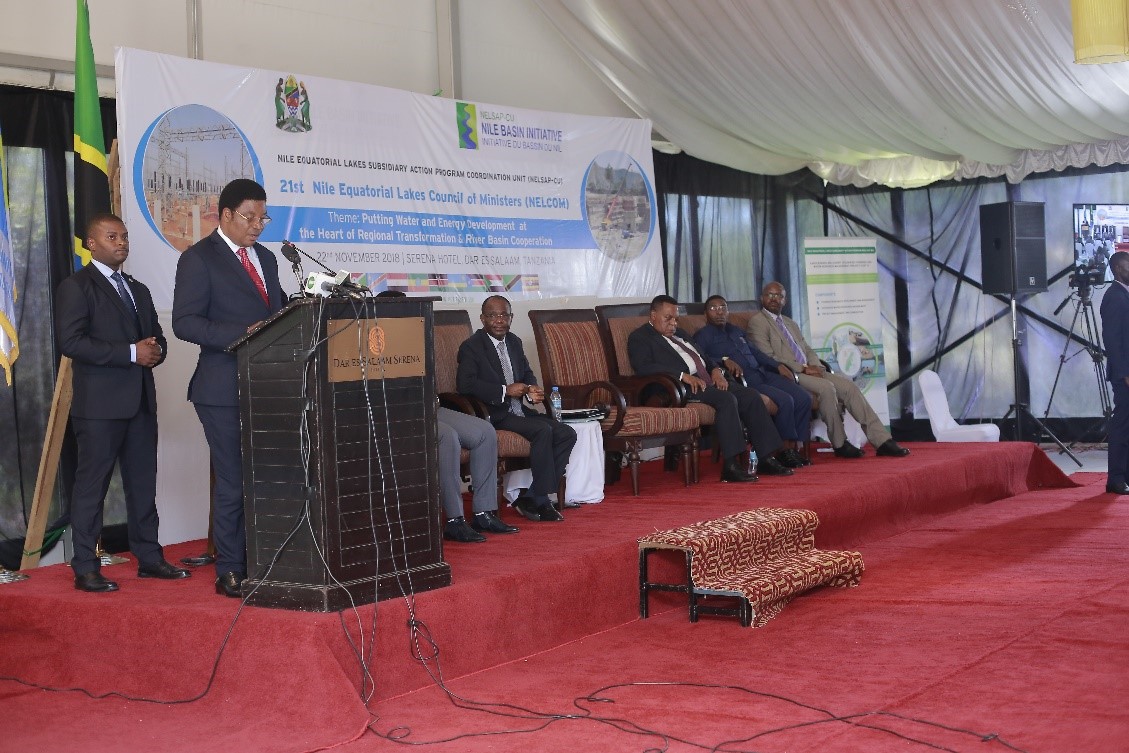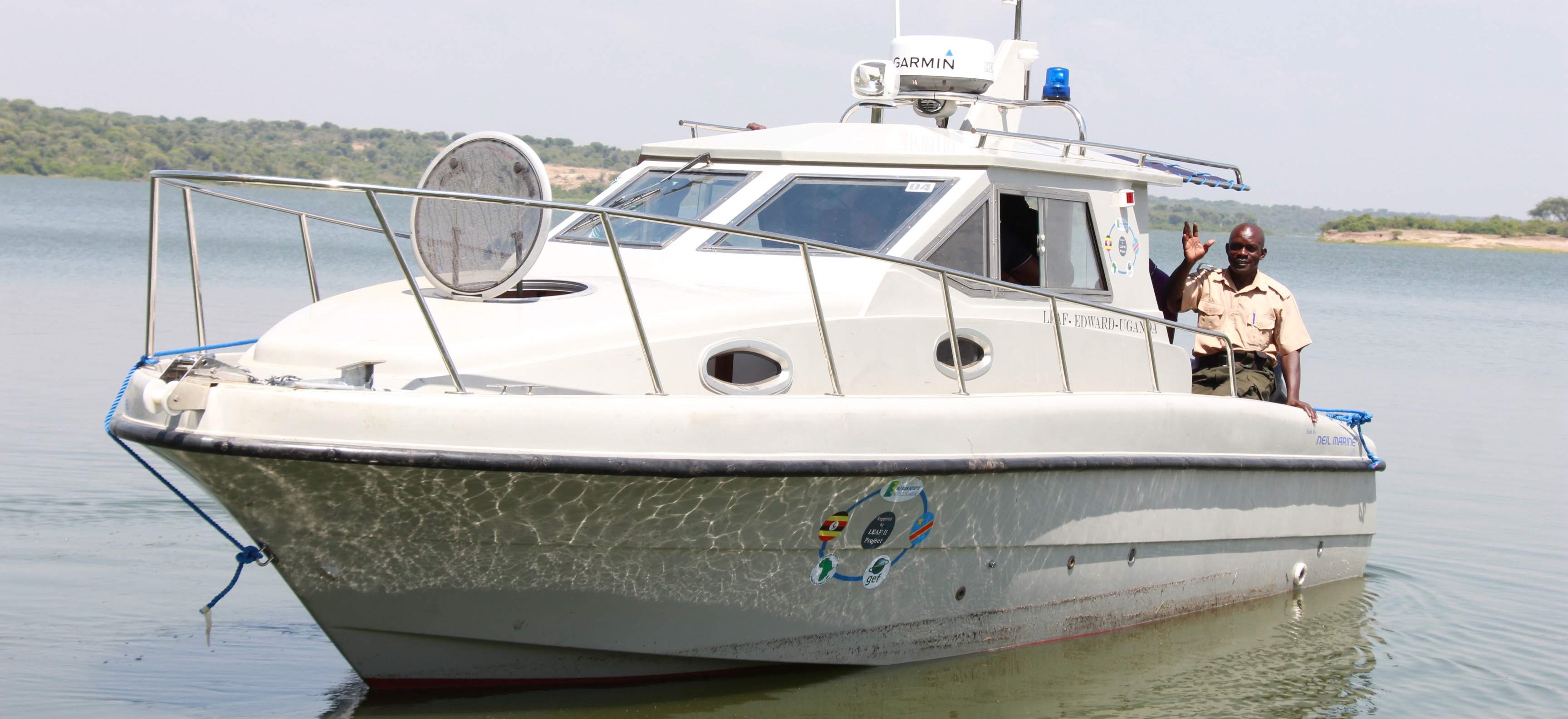“Last week we harvested three kilograms of pure honey and sold each 250 grams bottle for UGX 20,000 (USD 5.5),” John Baptiste said when a team from NELSAP visited his group’s apiary project end of March 2022. The group is called Choir Youth Group for people with disability and is based in Dei Sub-County, Pakwach District on the shores of Lake Albert, Uganda. John Baptiste is the group secretary.
“We have 31 bee hives, all presently with colonies of bees. From each hive, we will harvest 18 kilograms of honey,” John explains. Choir Youth Group is composed of 29 people with various disabilities. Ten of its members are female. The group is engaging in apiculture through the support of LEAF II Project.
 Mr. Mucwa Maurice, Dei Sub-County Chief explained that because fish catch on Lake Albert has been on the decline, he was very pleased that LEAF II decided to support groups in the Sub-County to engage in various alternative livelihoods ventures to supplement their income from fishing. He opined that this would reduce pressure on the lake.
Mr. Mucwa Maurice, Dei Sub-County Chief explained that because fish catch on Lake Albert has been on the decline, he was very pleased that LEAF II decided to support groups in the Sub-County to engage in various alternative livelihoods ventures to supplement their income from fishing. He opined that this would reduce pressure on the lake.
“During the needs assessment training, this group wanted to engage in cattle rearing as their first choice, however when we conducted market analysis and examined their capacity, we proposed to them apiculture, which they had listed as their second choice,” explains Mr. Geoffrey Kayongo, a Social Development Expert from the Ministry of Water and Environment, Uganda. Mr. Geoffrey Kayongo is responsible for providing technical support to groups receiving alternative livelihoods support from LEAF II Project in the district. He says that before they began to support this group, it already had three bee hives of their own. However, the hives the group had were not of good quality and the group lacked adequate skills and equipment to maximize income from their apiculture venture and so improving on what the group were already familiar with and had some interest in, was the best available option.
Through the LEAF II Project, the group was provided with 27 longstroth hives, 8 sets of protective safety gears comprising of protective veils, bee helmets, bee suits, leather gloves and gum boots, cans for packaging honey, solar wax melters, queen separators, honey collection tins, bee attractors, and hive tools (knives, chisels and smokers).
The group says market for their honey has been great so far. They were linked with a national honey marketing company that has apiaries across Uganda and as a result have ready market for their honey. They have the alternative to sell surplus honey at the nearby Pakwach town as well as to customers from D.R Congo, whose border is less than a kilometer away.

Mr. John Baptiste, says they formed the group two years ago (in 2019) initially as a church choir. They decided to engage in income generating activities to support their members, many of whom could not do regular activities due to their disabilities. Through LEAF II they were trained on basics of bee keeping; from attracting bees into new hives, harvesting and packaging, handling wax and making by products like candles out of bees wax.
“Our honey tastes very sweet because of the natural environment around us,” says John. He adds that they want to purchase smaller packaging tins to enable them attract even people at the lowest end of the market. They also hope to purchase good quality and approved fishing gears to enable them return to their main source of livelihood.
“I am very impressed with this group because they are doing something unique despite their physical challenges and because of that they have become an inspiration to others,” said Mr. Lawrence Alithum, the elected Sub-county Council (LC III) Chairperson. The challenge they currently face is that they lack a permanent office and their hives are also not fenced. The hives are in the compound of one of their members who volunteered to freely lease his land to the group.
The Multinational Lakes Edward and Albert Integrated Fisheries and Water Resources (LEAF II) is a project of NELSAP/NBI that is funded by the African Development Bank (AfDB) and the Global Environment Facility (GEF) and implemented in collaboration with the Governments of the D.R Congo and Uganda. The LEAF II project ended on 31st March 2022.

